- United States
- Canada
- The Eurozone
- Japan
- Asia-Pacific
- China
- India
- Emerging Markets
- Equities
- Rates
- Commodities
- Food for Thought
United States
- The timely estimate of US growth has been stable at around potential.
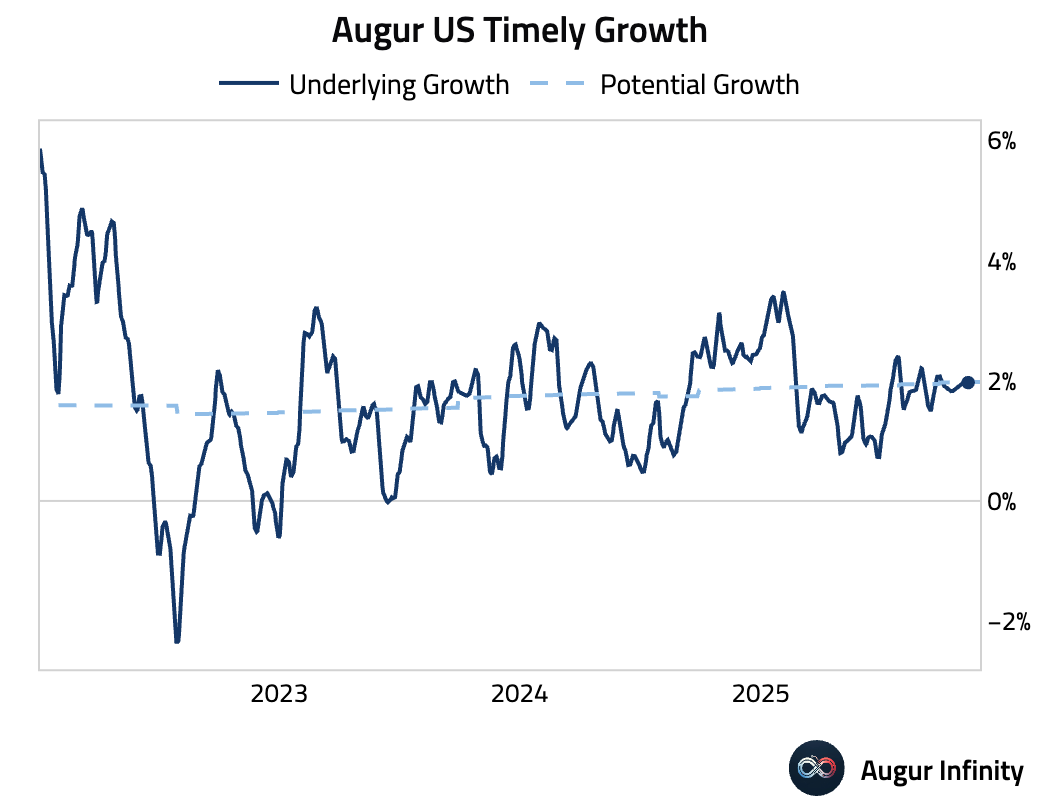
- Goldman's job growth tracker slowed but remained above its stagnant pace of the summer.
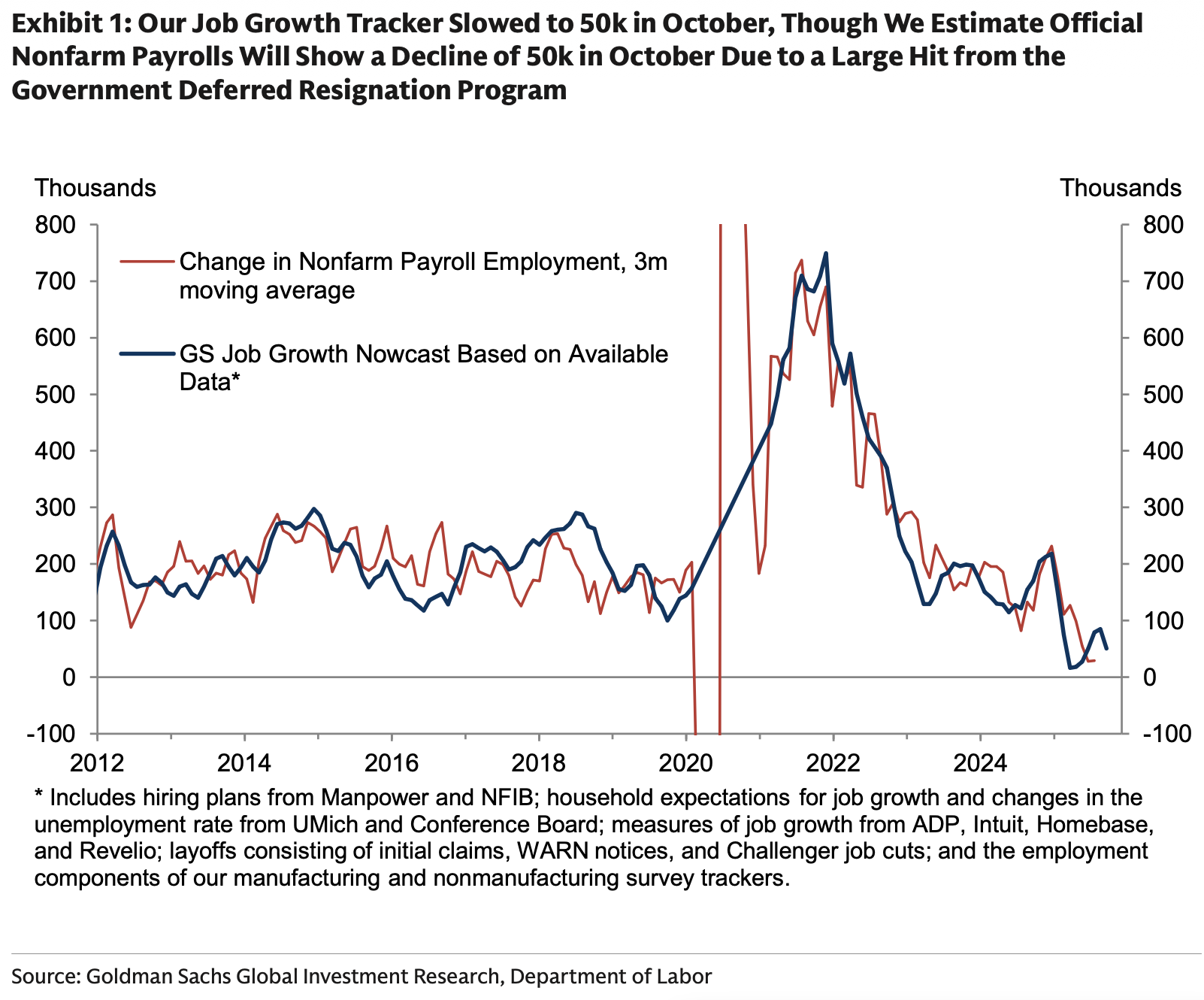
Source: Goldman Sachs
- Bank of America's internal data showed total card spending per household rising 0.3% month over month, continuing a solid five-month run.
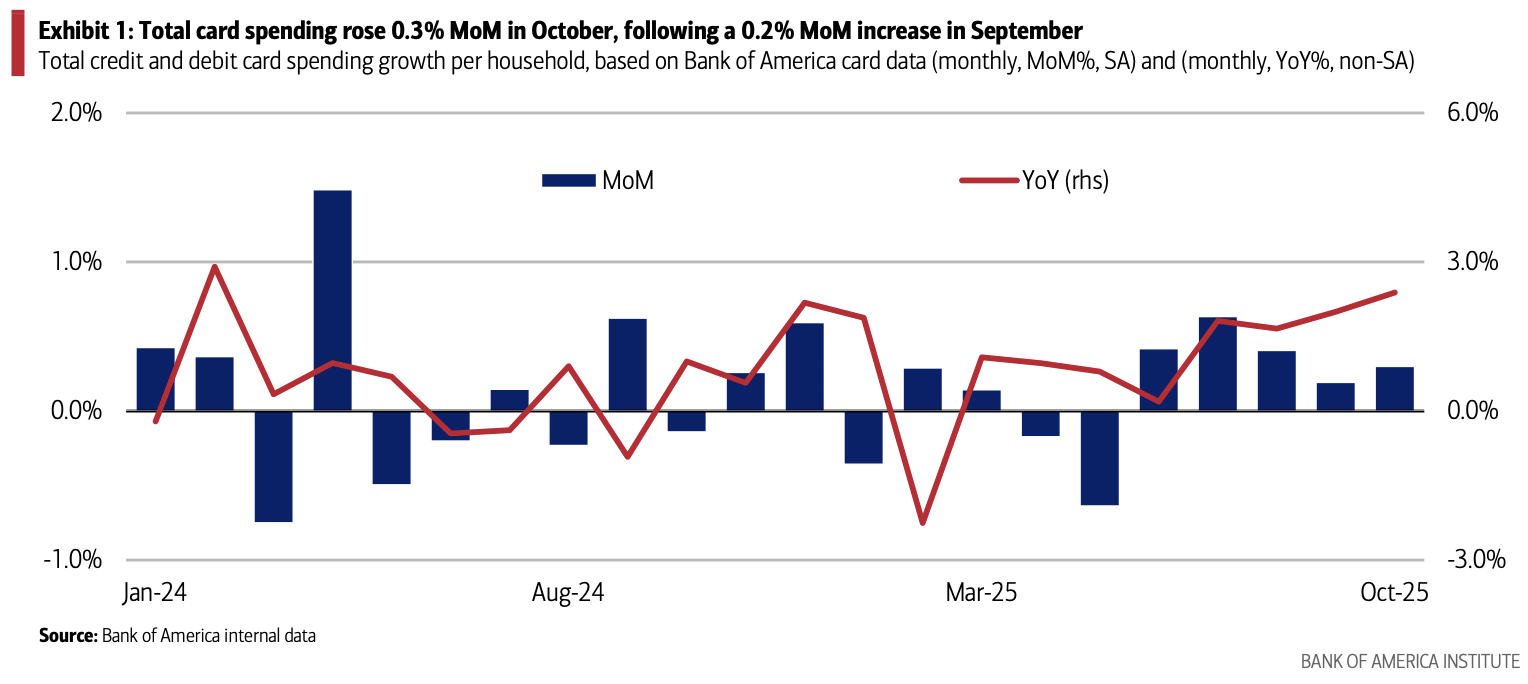
Source: Bank of America Institute
Goldman's consumer spending tracker suggests that consumer spending growth pulled back temporarily in September but rebounded in October.
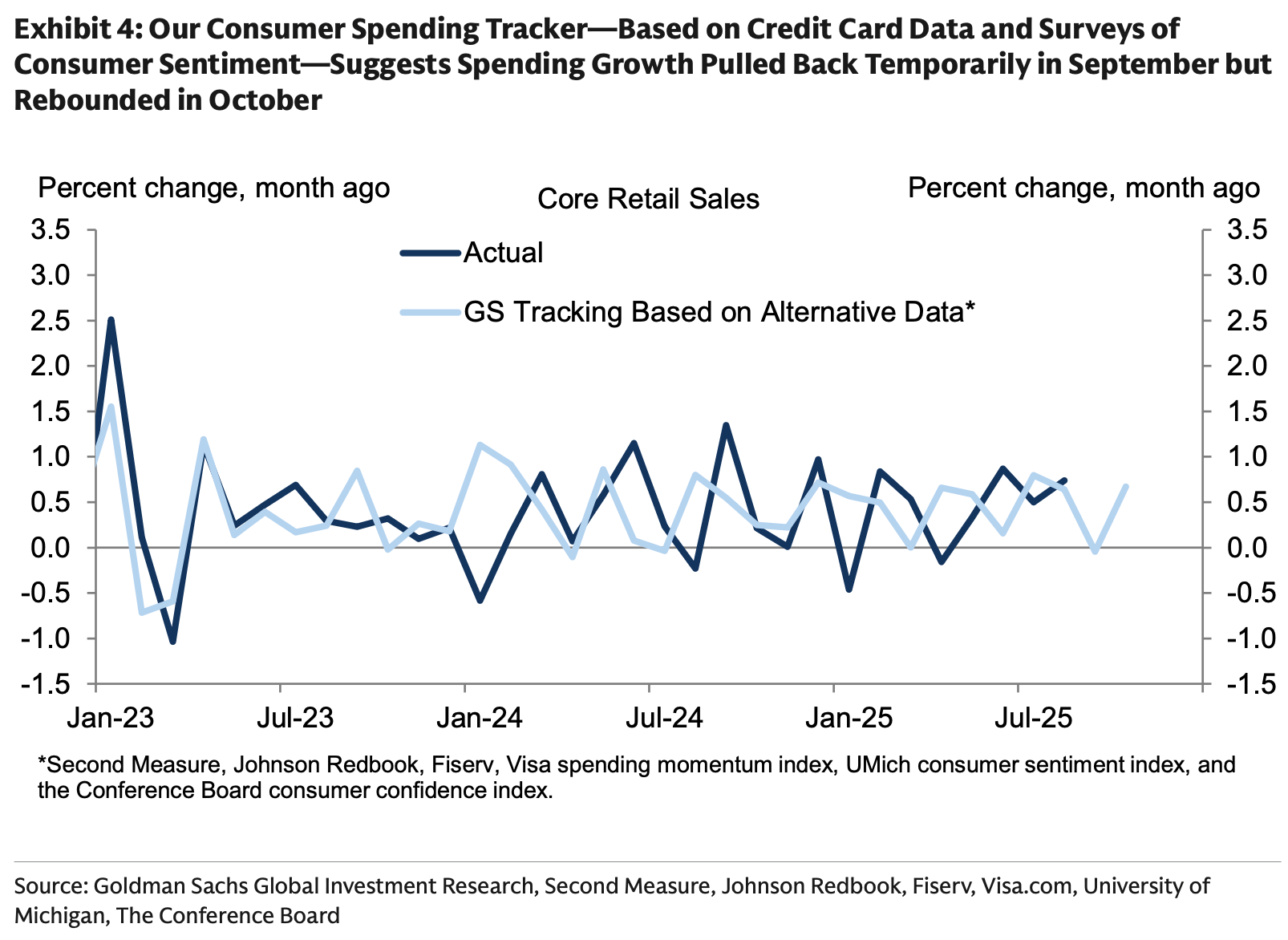
Source: Goldman Sachs
- The average 30-year fixed mortgage rate edged up slightly last week.
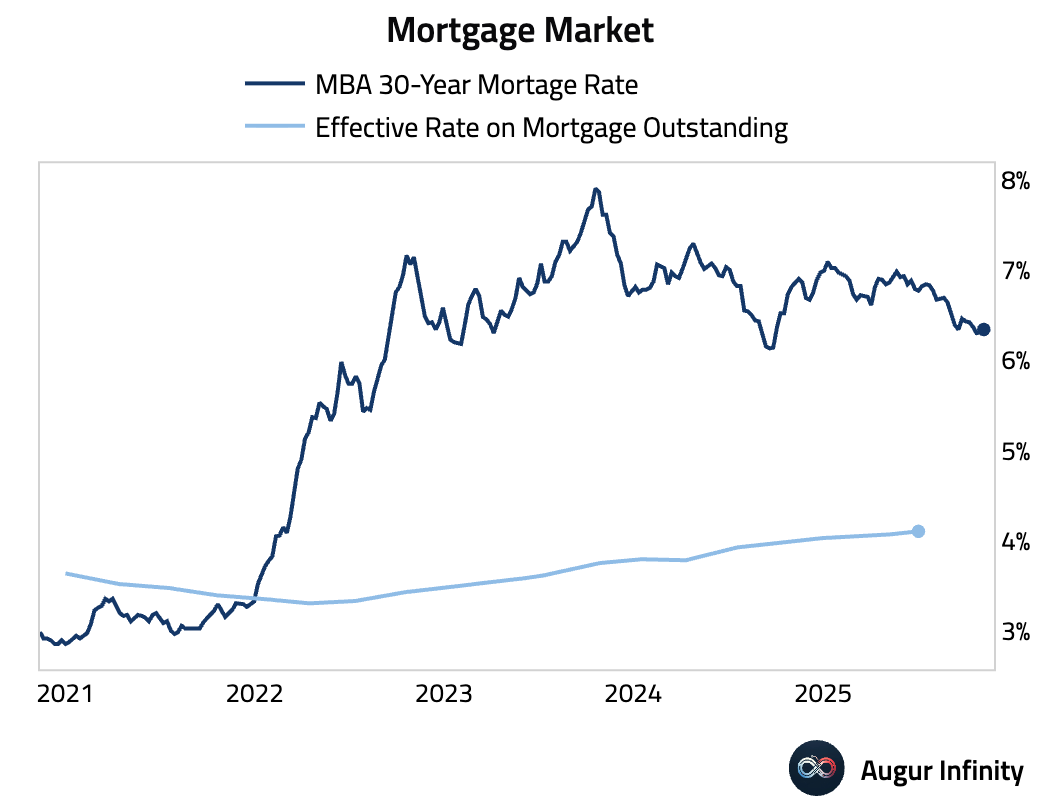
- US mortgage applications increased week over week, reversing the prior week's decline. The gain was driven by a rise in the purchase index, while the refinance index fell.
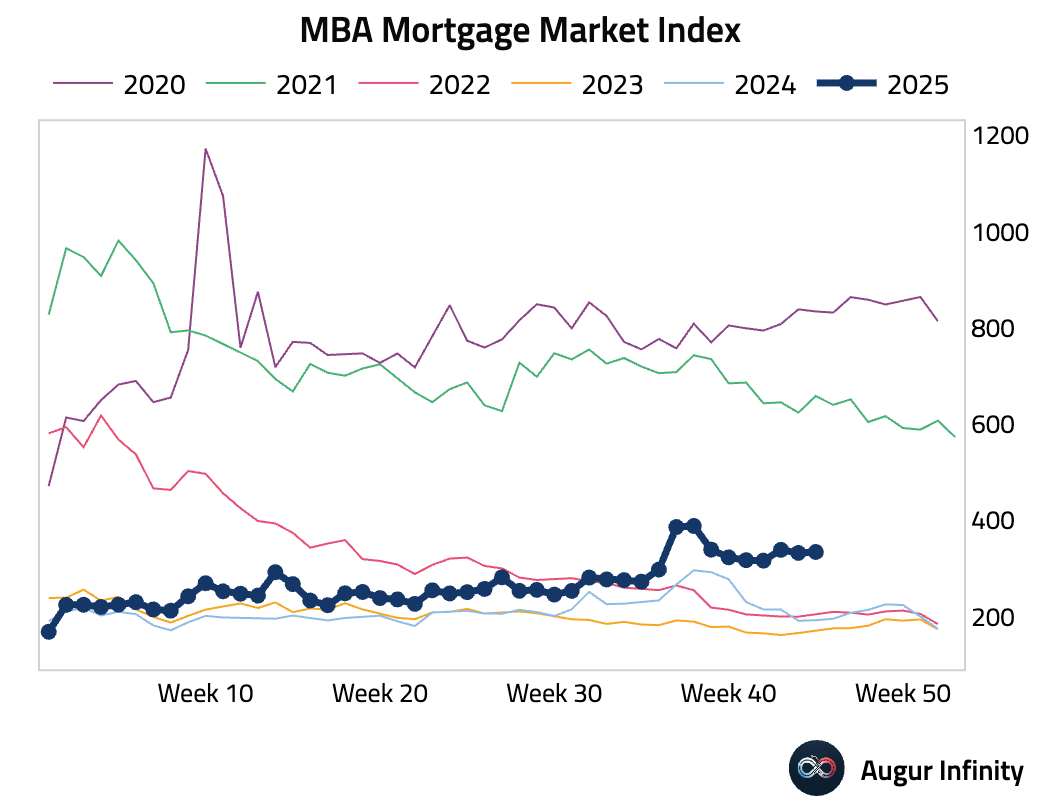
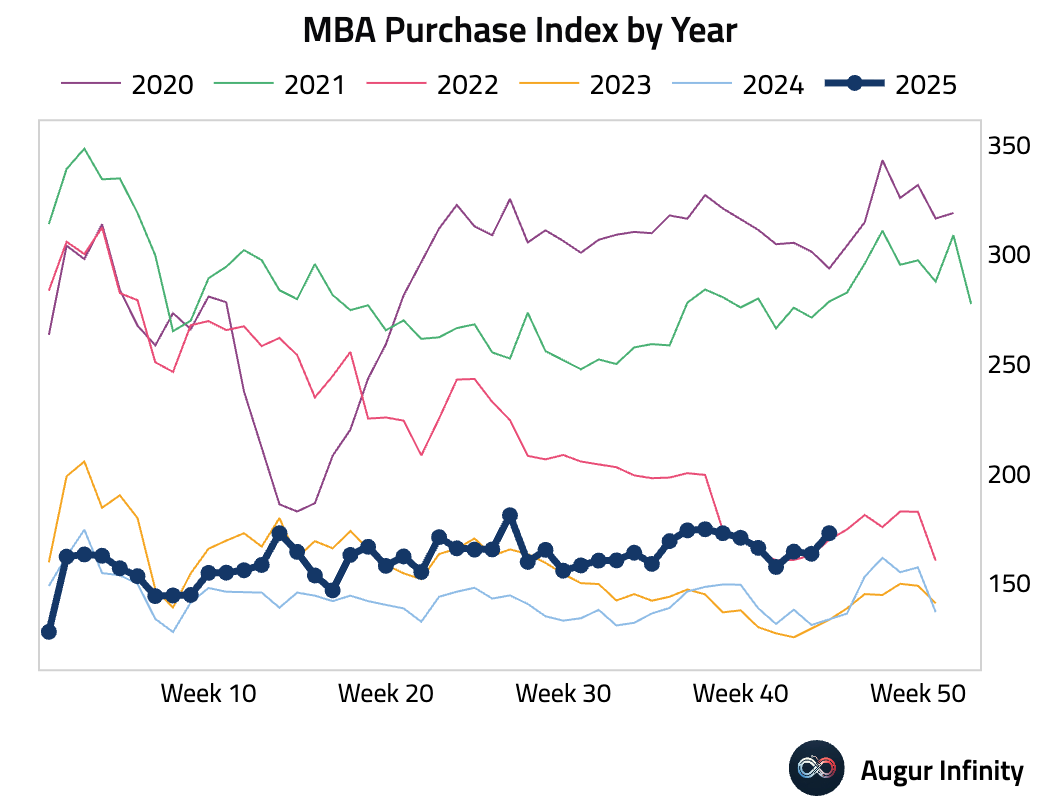
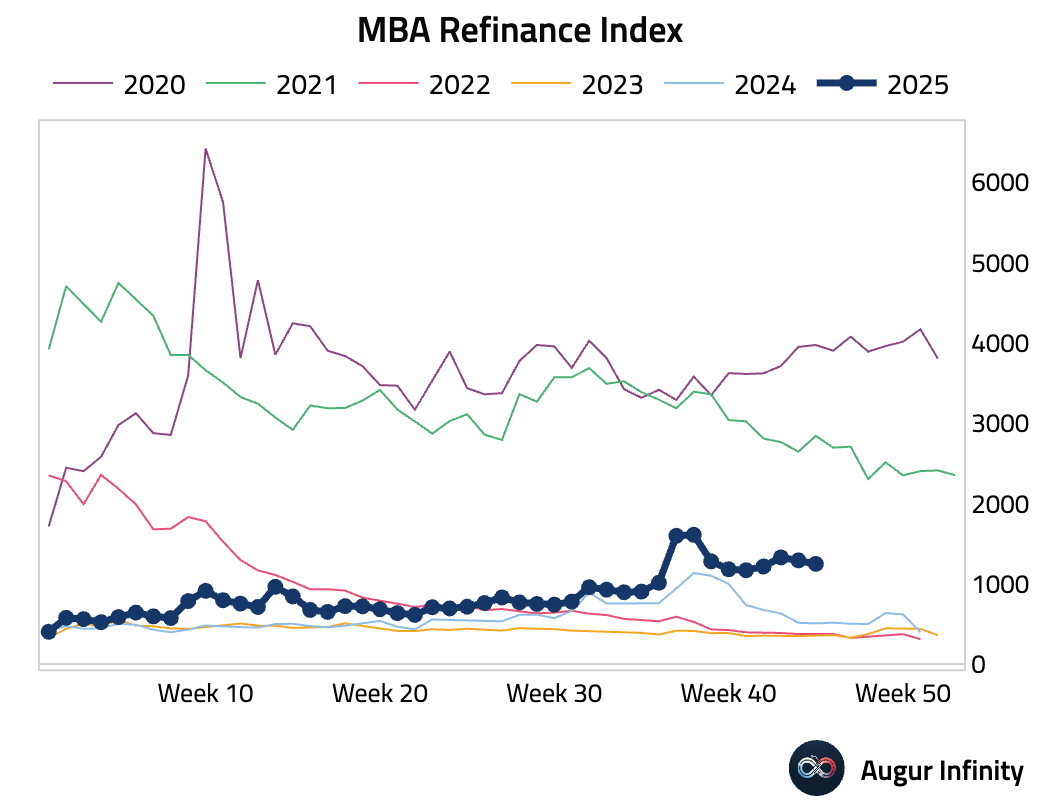
- Apartment rents are falling in more US markets today than during the pandemic.
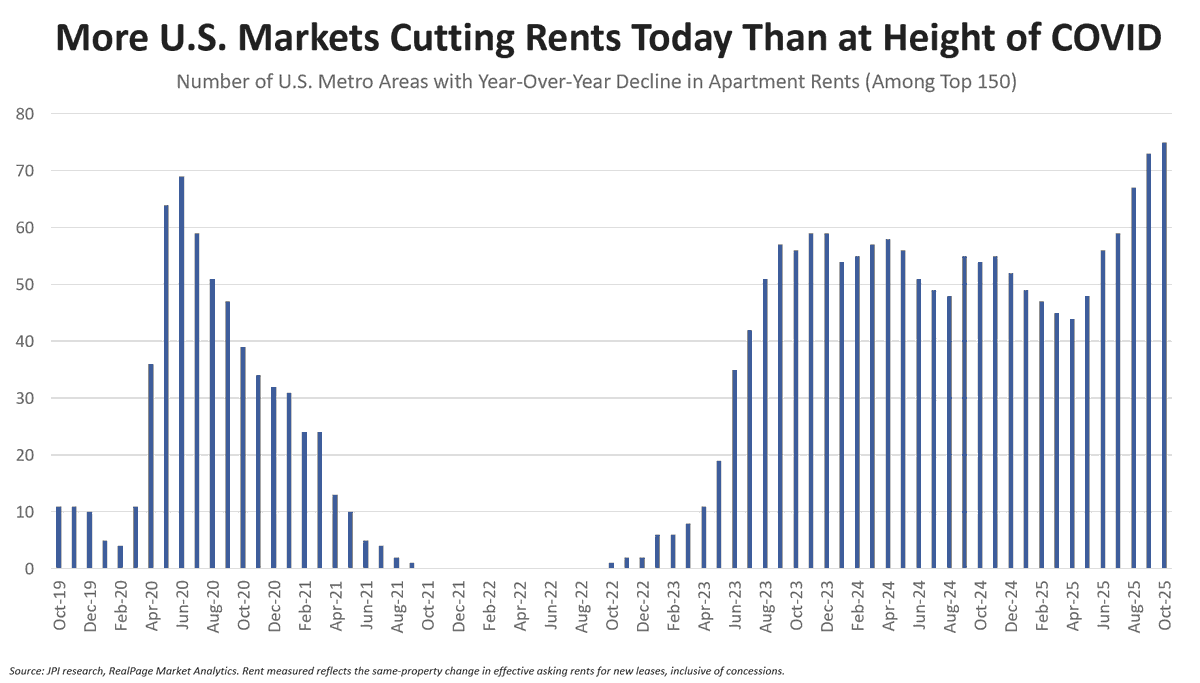
Source: Jay Parsons
Canada
- Canadian building permits rebounded, but remained down year over year.
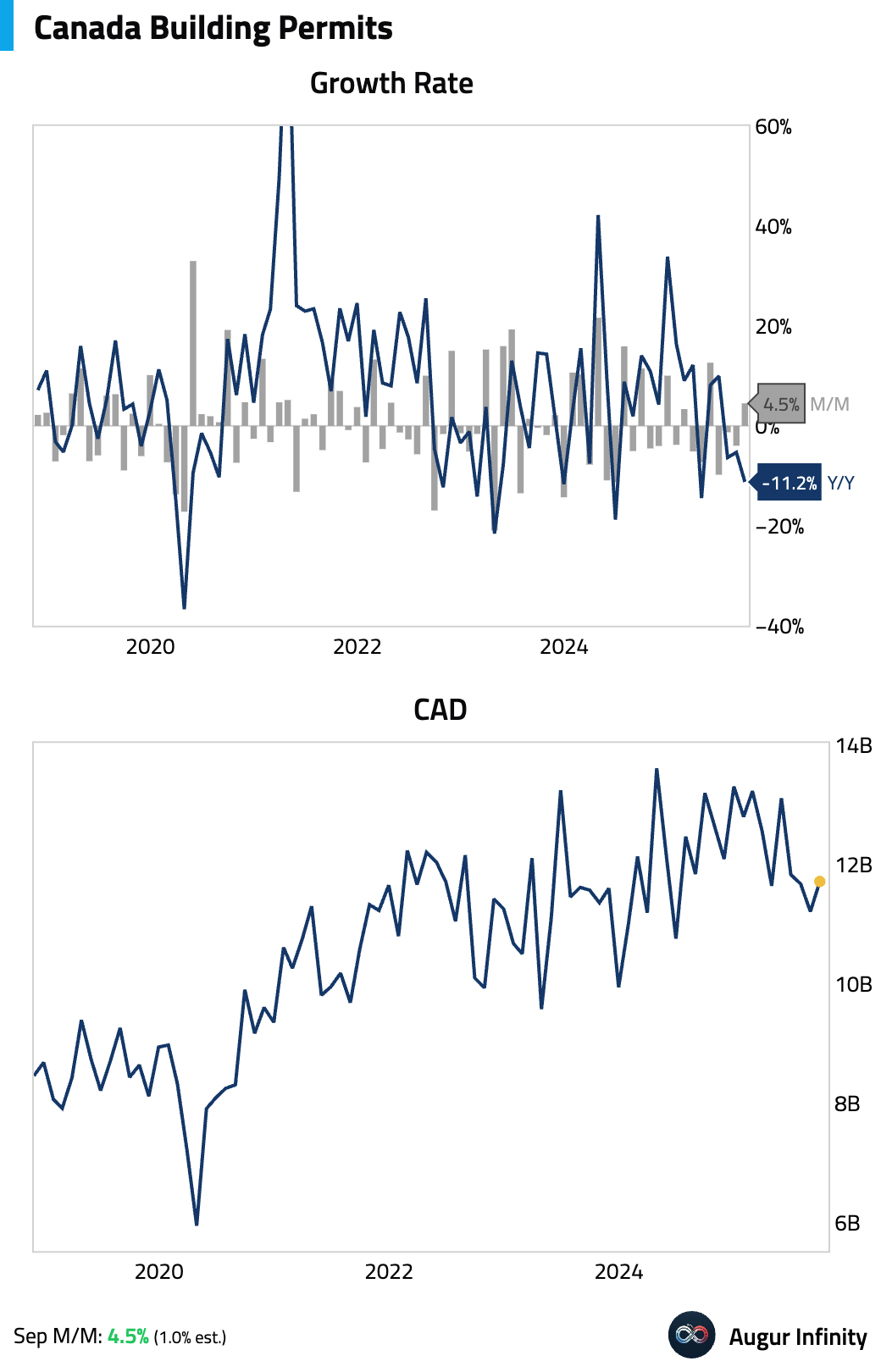
- According to CREA's MLS Home Price Index, home prices have held up in Quebec and Montreal, but the steepest declines have been in the Durham Region.
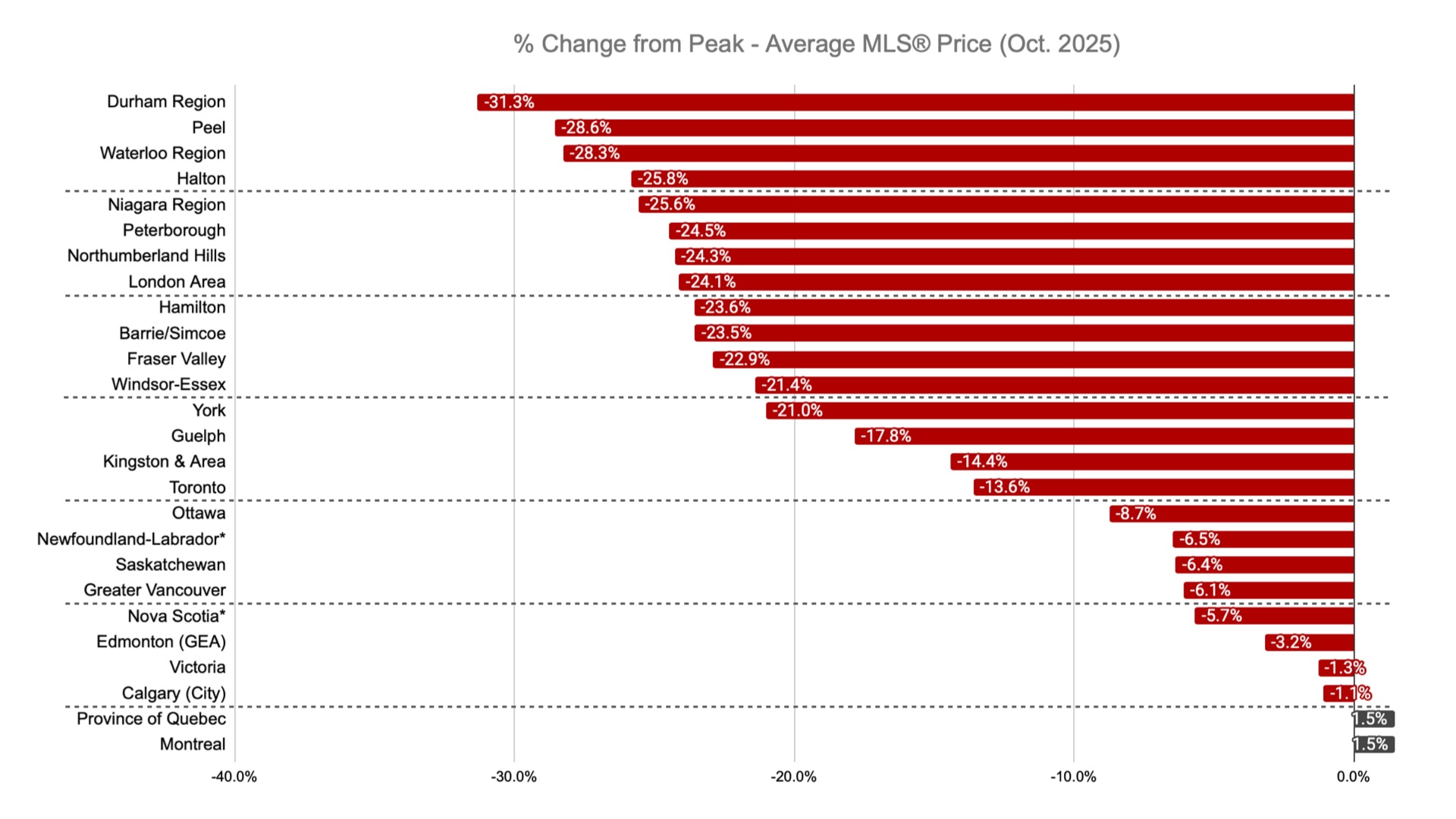
Source: The Canadian Real Estate Association via @JonFlynnREstats
- S&P/TSX Composite reached yet another all-time high.
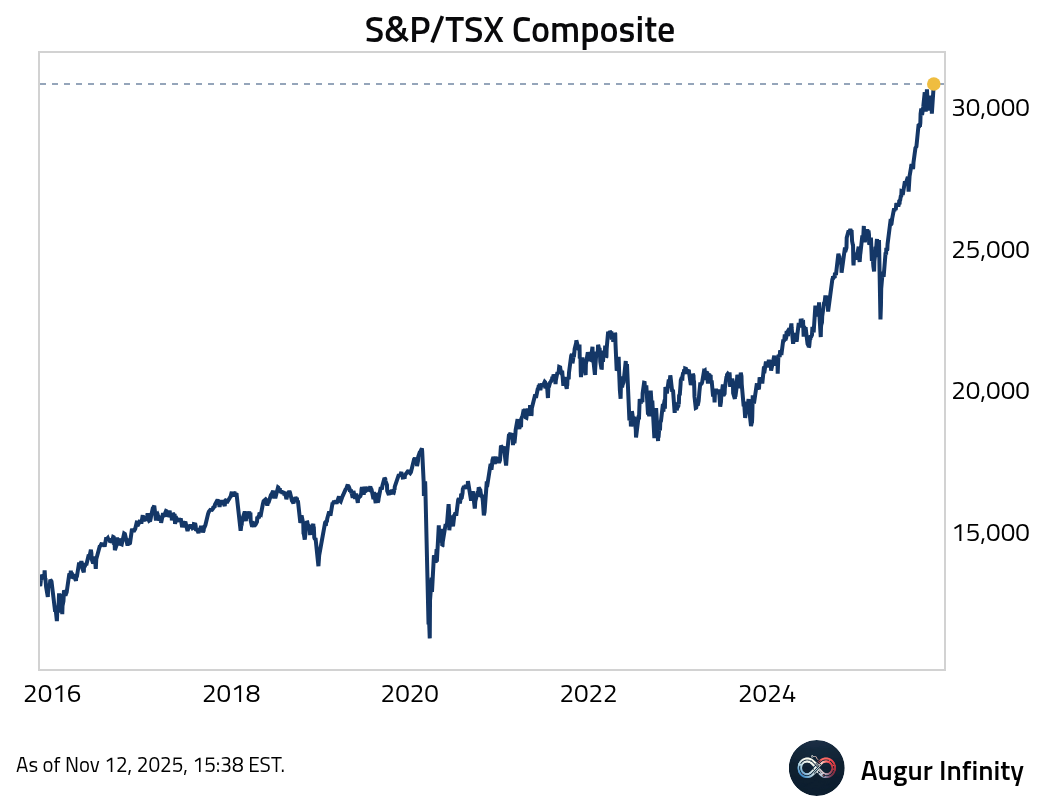
- Equity prices of Canadian oil and gas companies have decoupled from crude oil prices.
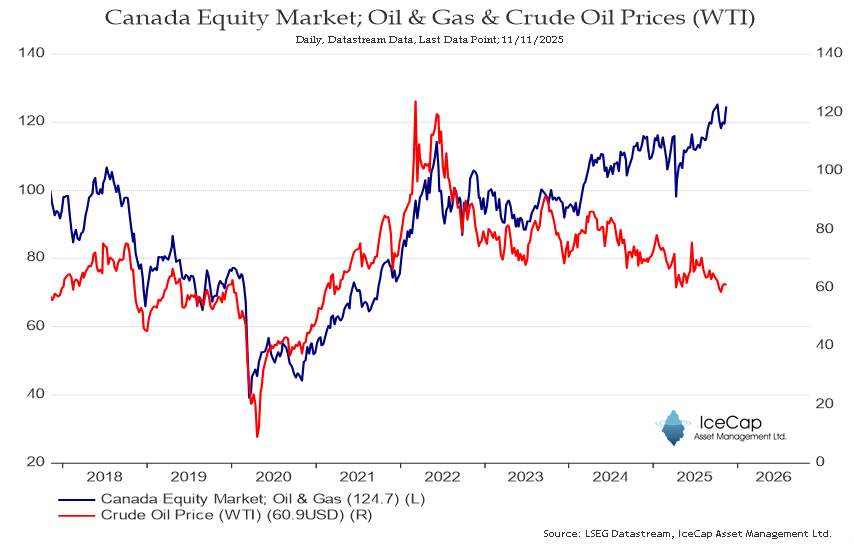
Source: Richard Dias
The Eurozone
- Germany has been running a deficit in capital goods with China since the start of this year.
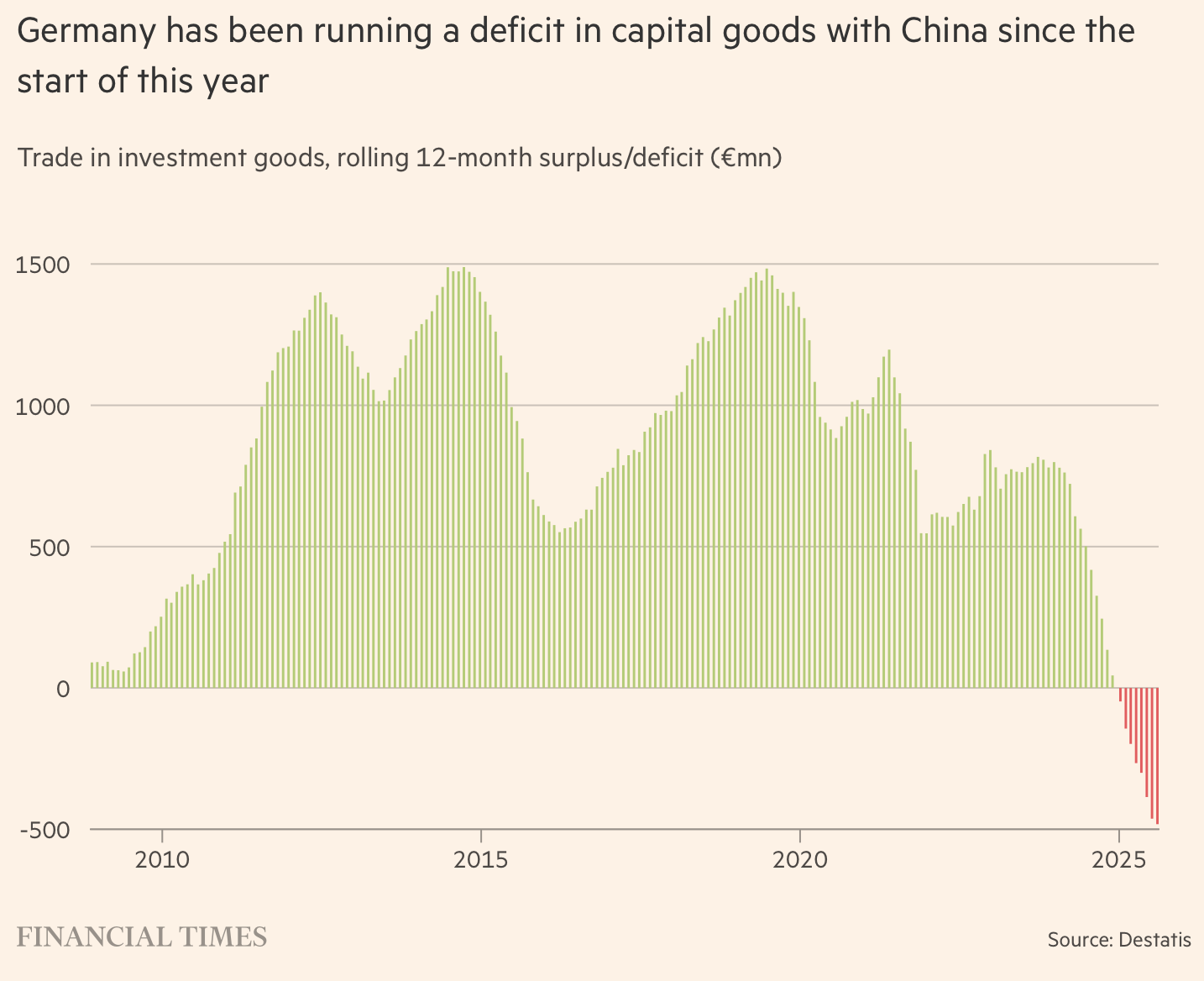
Source: @financialtimes
Both core goods and services inflation have been creeping higher in recent months in Germany.
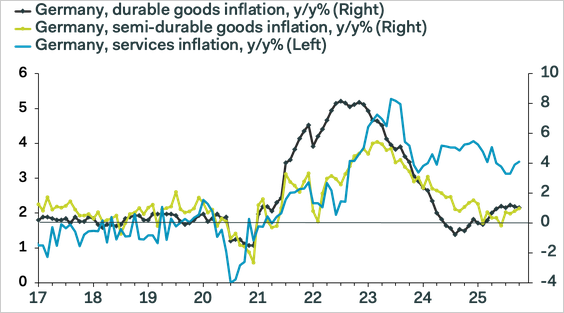
Source: Pantheon Macroeconomics
- Italian industrial production rebounded in September.
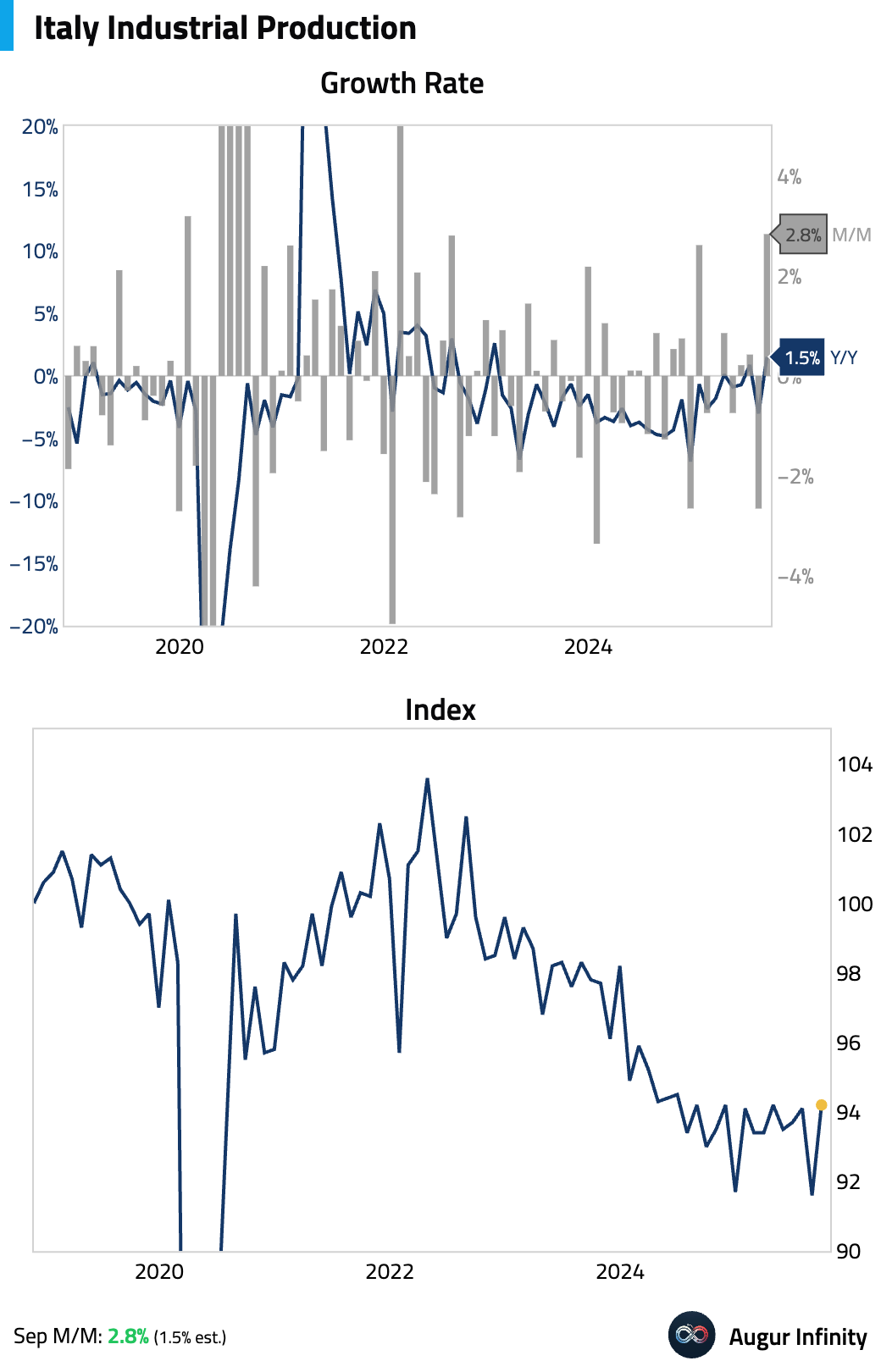
The MIB surpassed the local high it reached in May 2007.
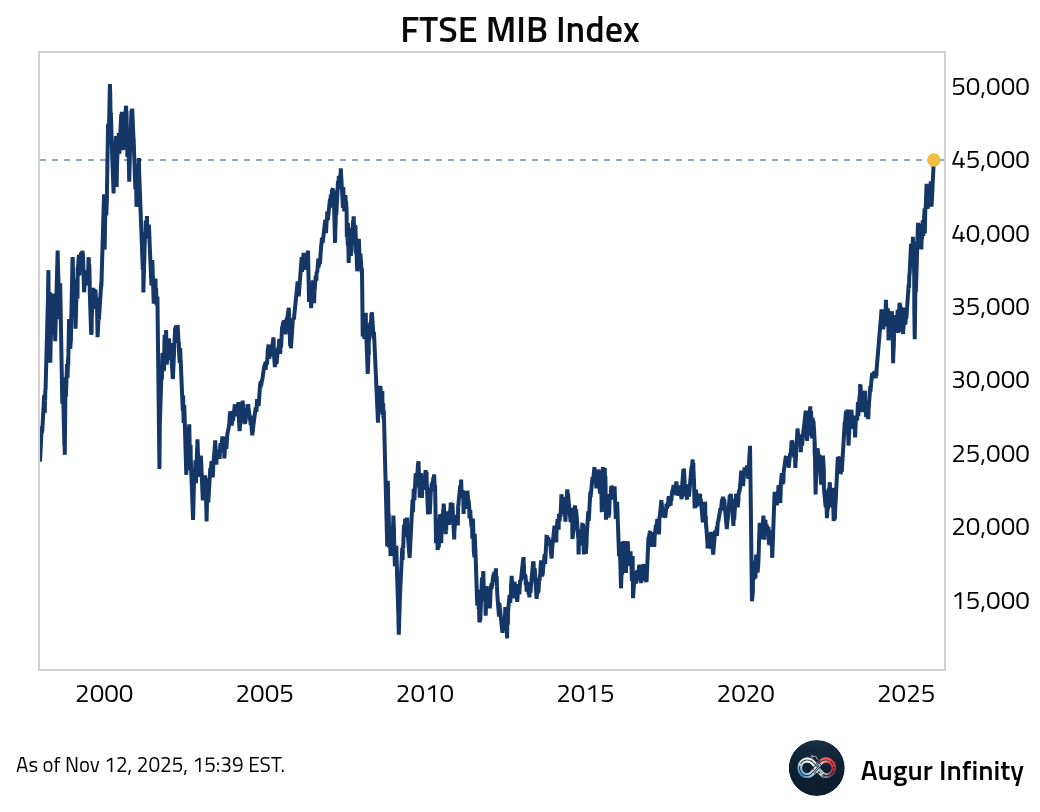

Source: Bloomberg
- Portugal's final inflation figures for October were confirmed at 2.3% Y/Y and 0.0% M/M.
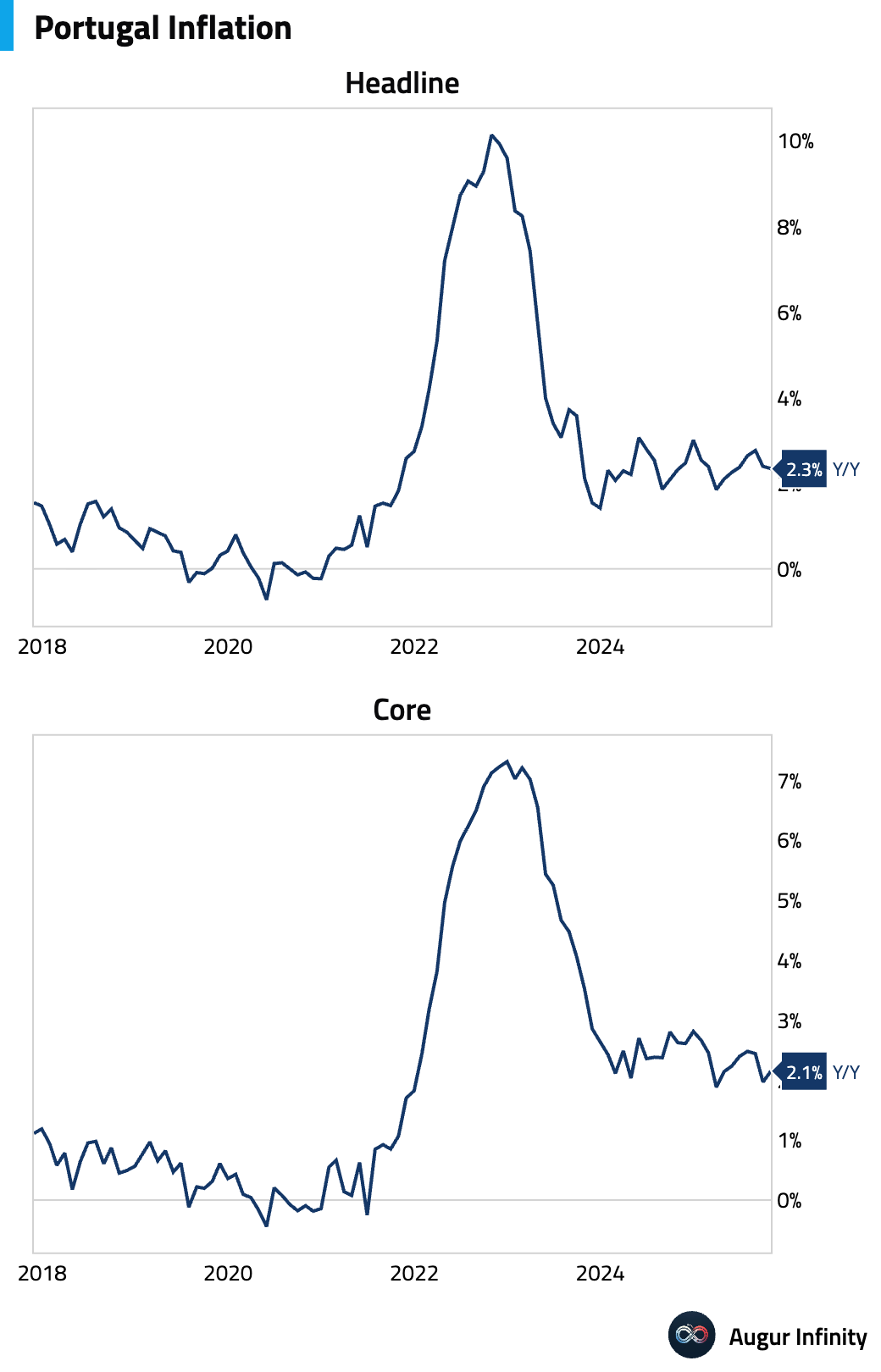
- Euro area equities have reached an all-time high …
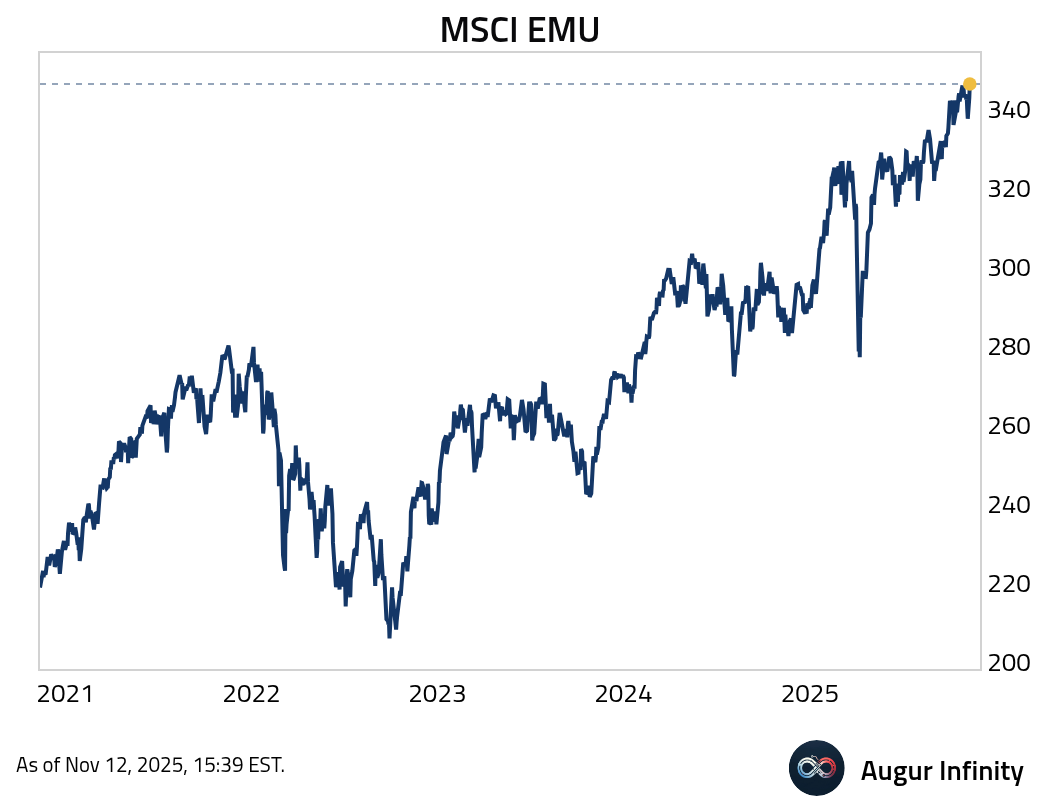
… as Q3 earnings surpassed expectations across the board.
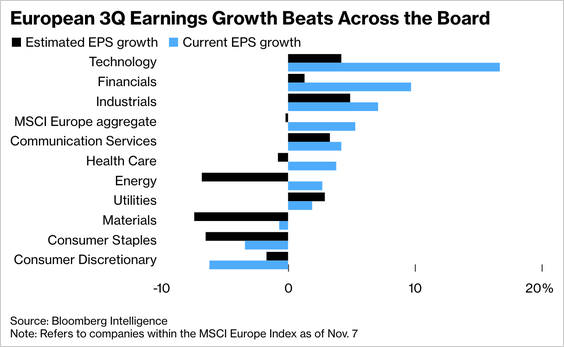
Source: Bloomberg
- EURGBP is at the highest level since April 2023.
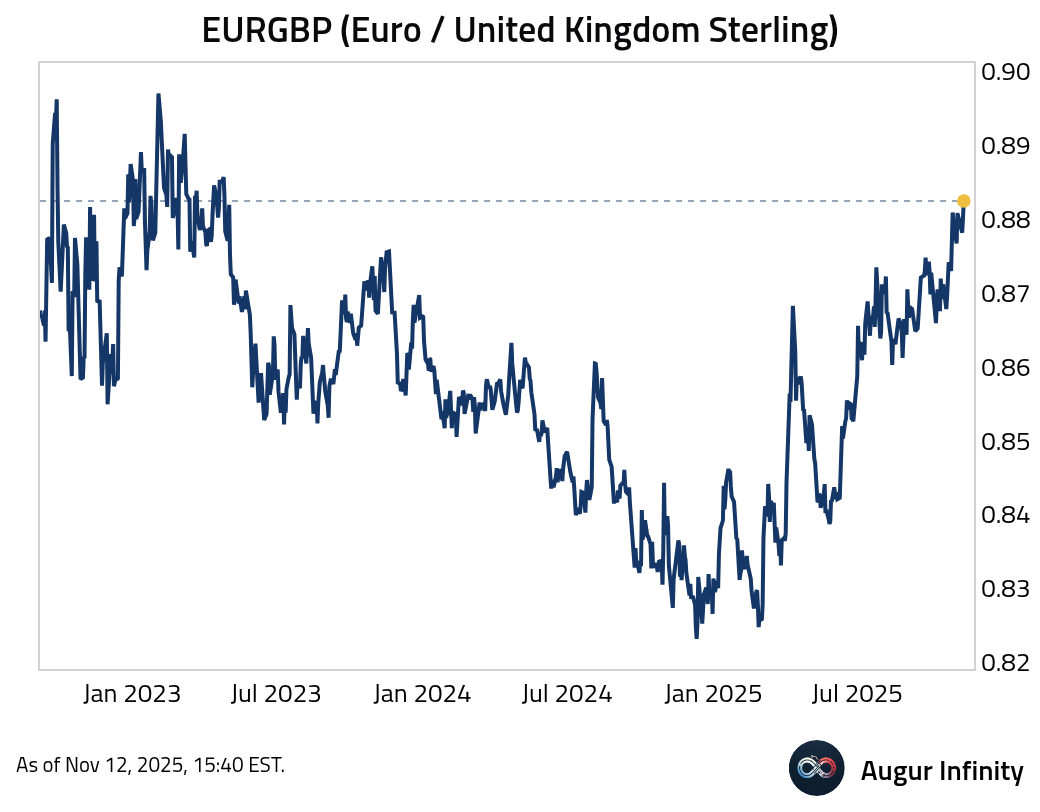
Japan
- The Reuters Tankan manufacturing index jumped to the highest reading since December 2021, while the non-manufacturing index remained steady.
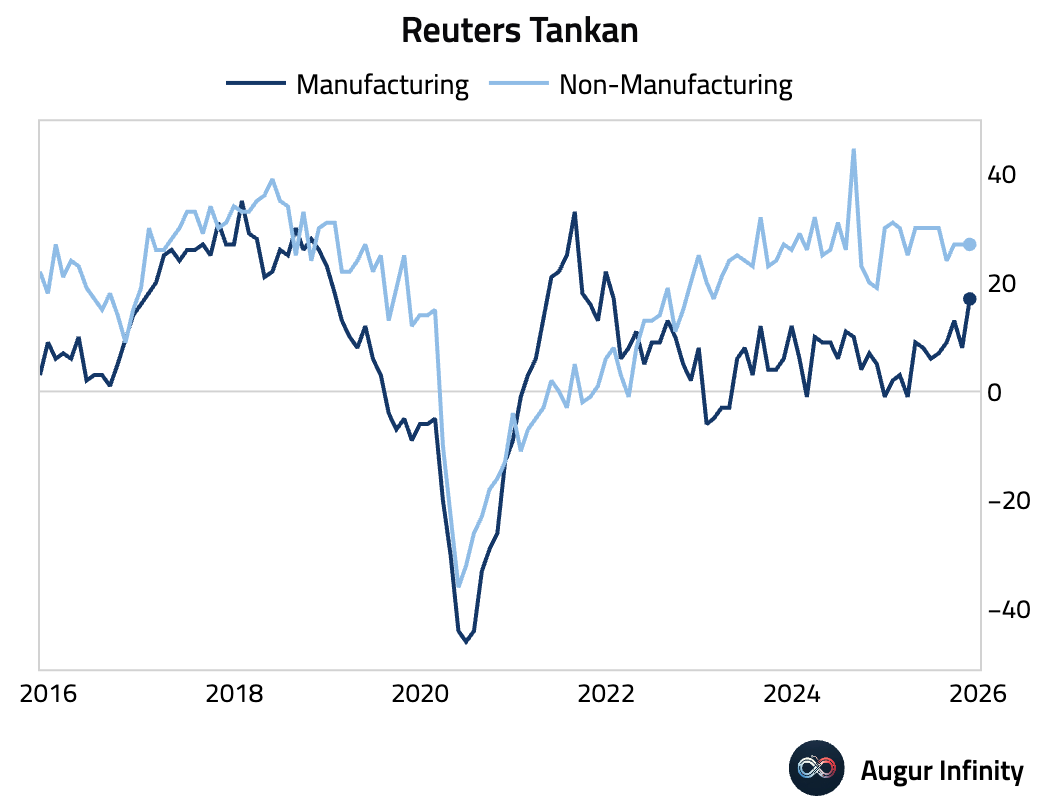
- Japanese machine tool orders posted solid growth, signaling strengthening capital investment.
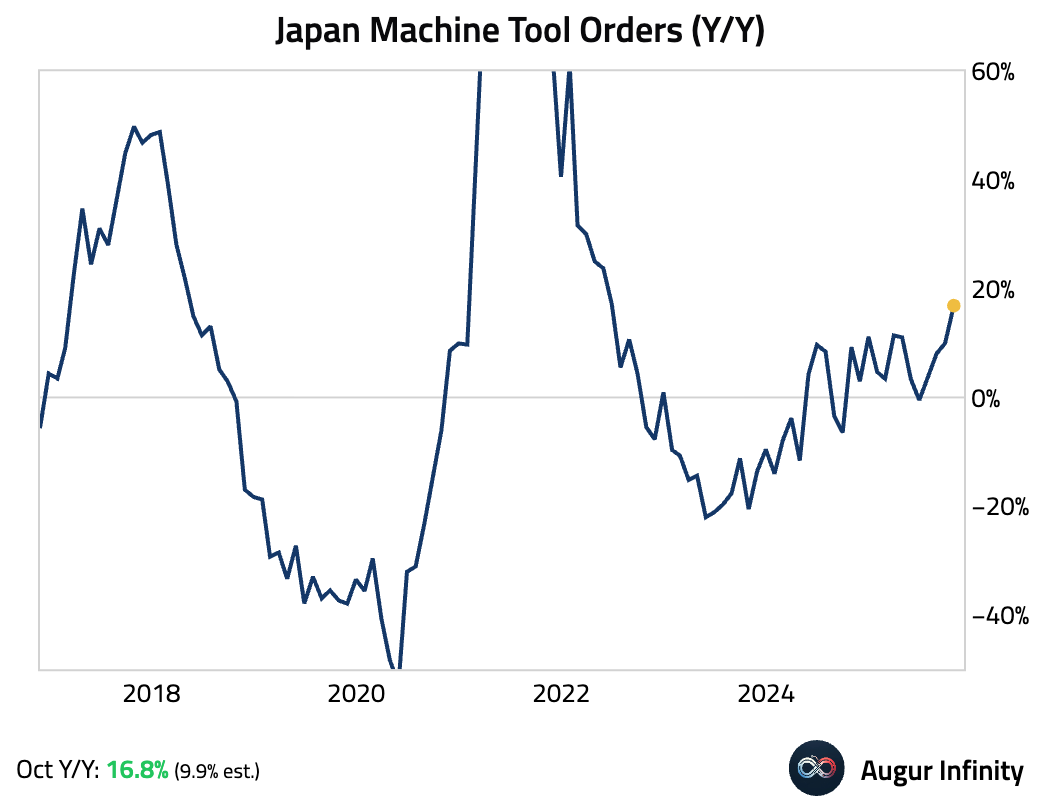
- The yen fell to a nine-month low, nearing the 155 level.
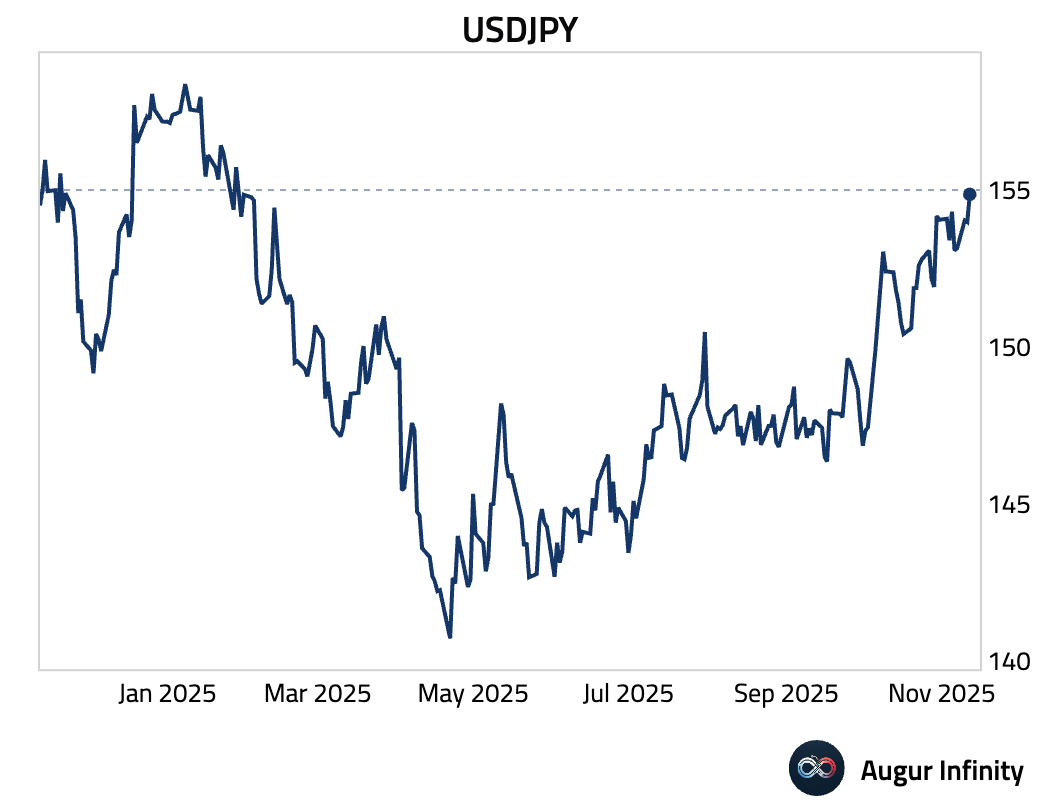
Japan’s finance minister warned that authorities are monitoring currency markets with “a high sense of urgency” as the yen weakened toward levels that previously prompted intervention.

Source: Bloomberg
Asia-Pacific
- Australian housing finance commitments surged in Q3 2025, powered by a sharp rise in investor loans to a record high. Falling borrowing costs and low vacancy rates were key drivers.
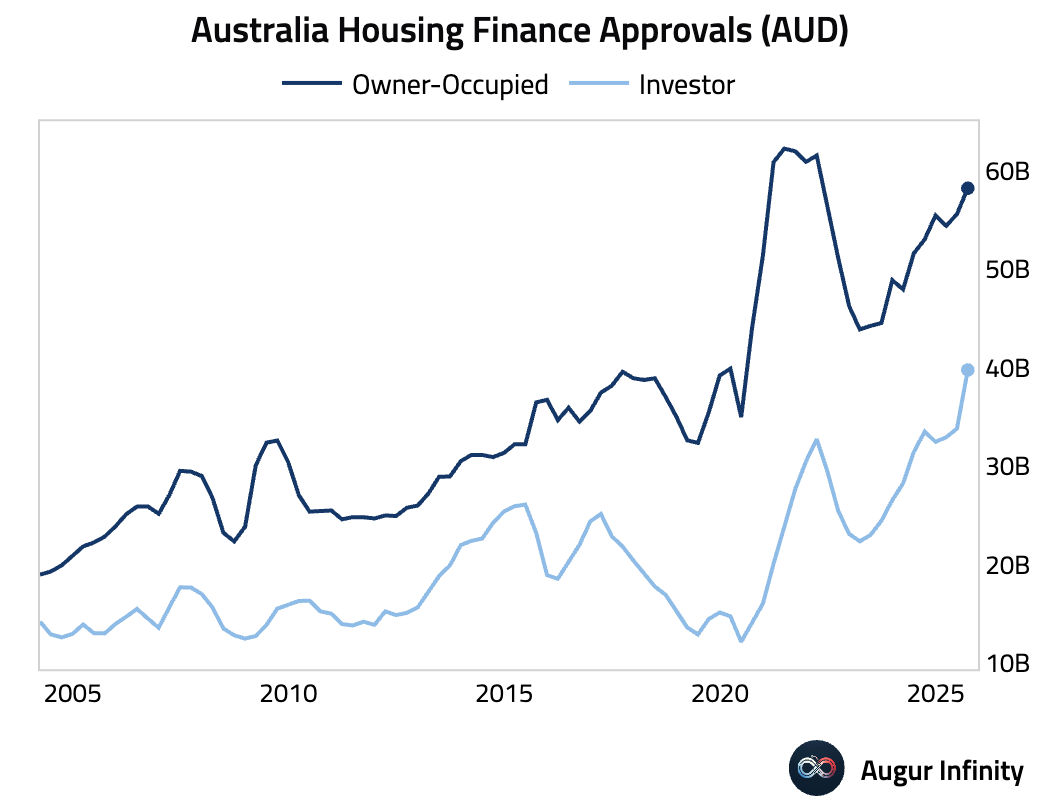
- S&P/NZX 50 Gross Index has reached its fifth all-time high of 2025.
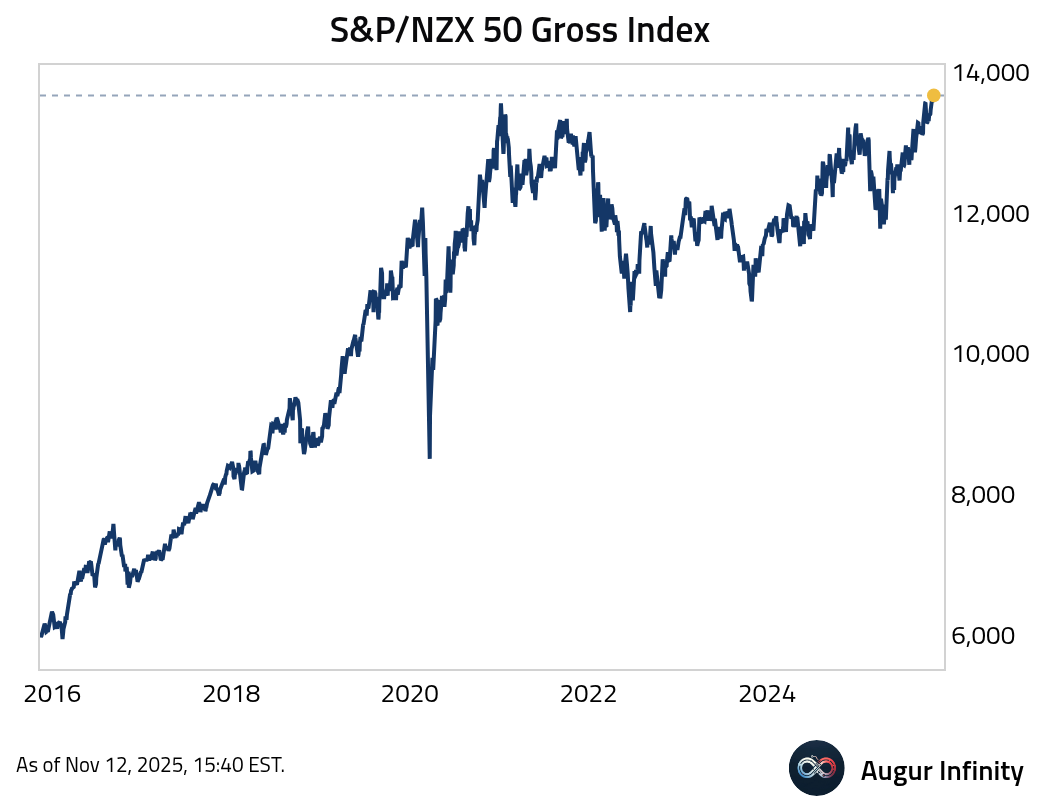
- South Korea’s unemployment rate edged up but remained low.
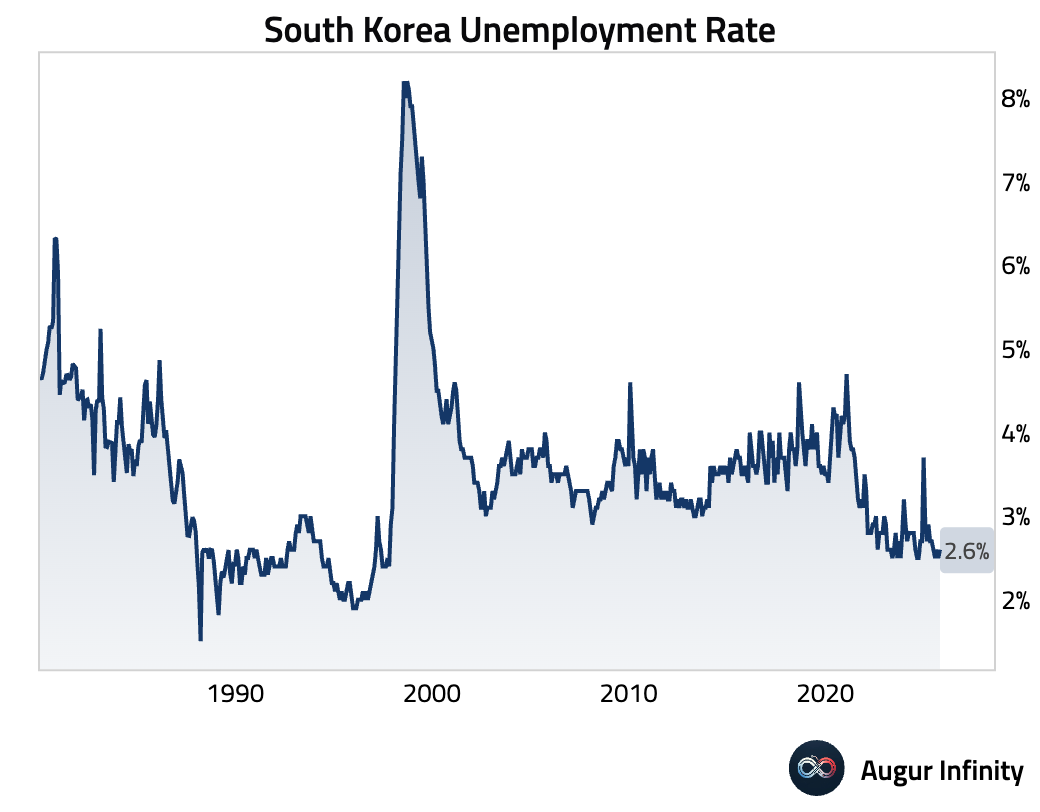
Employment growth was negative in October and has decelerated over the past few months.
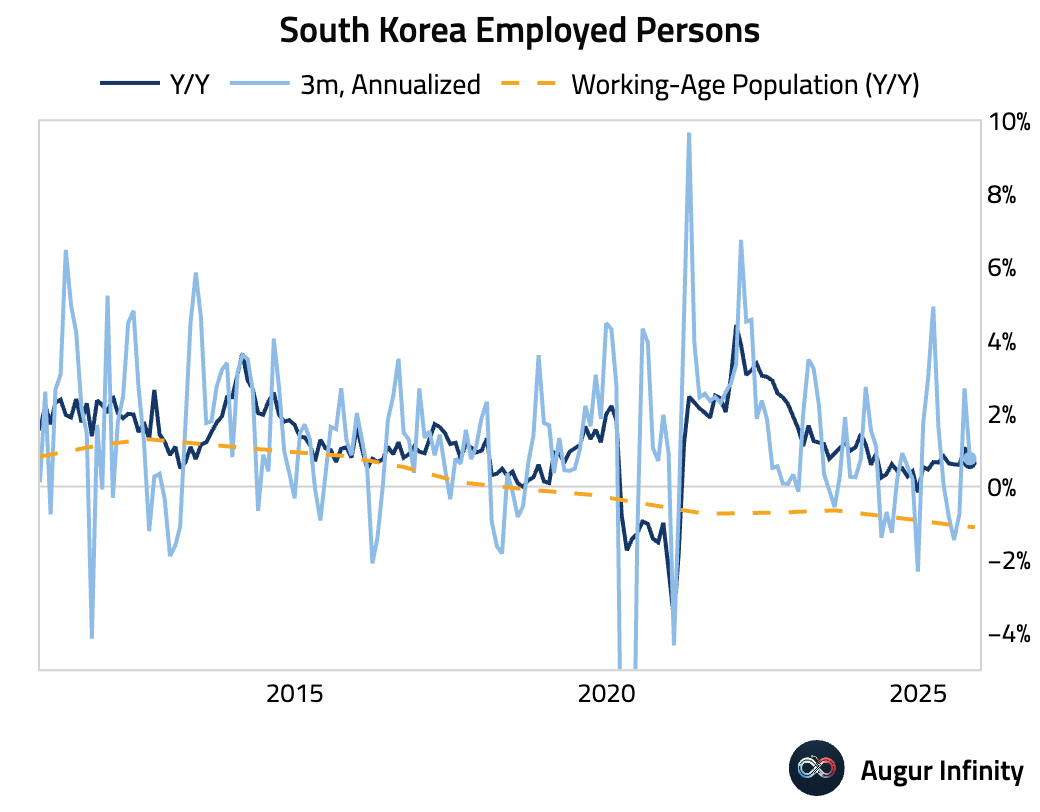
The labor force participation rate also declined.
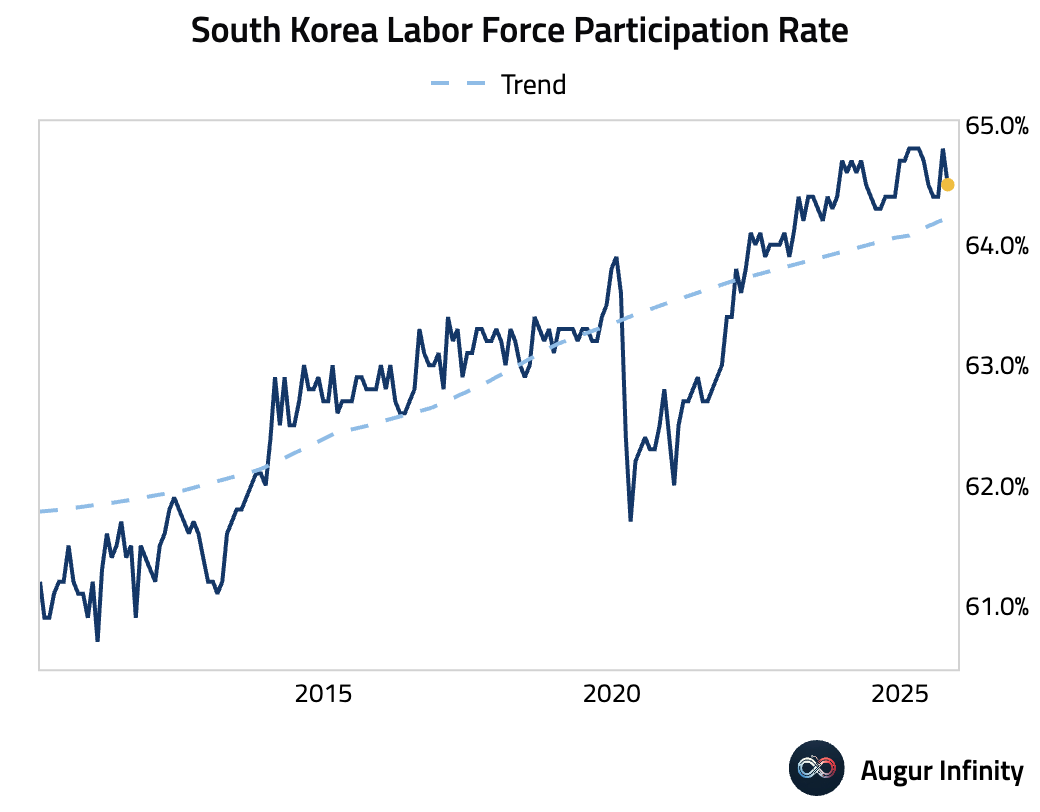
- South Korean retail investors have nearly doubled their holdings of US equities this year, fueling volatility in meme stocks.
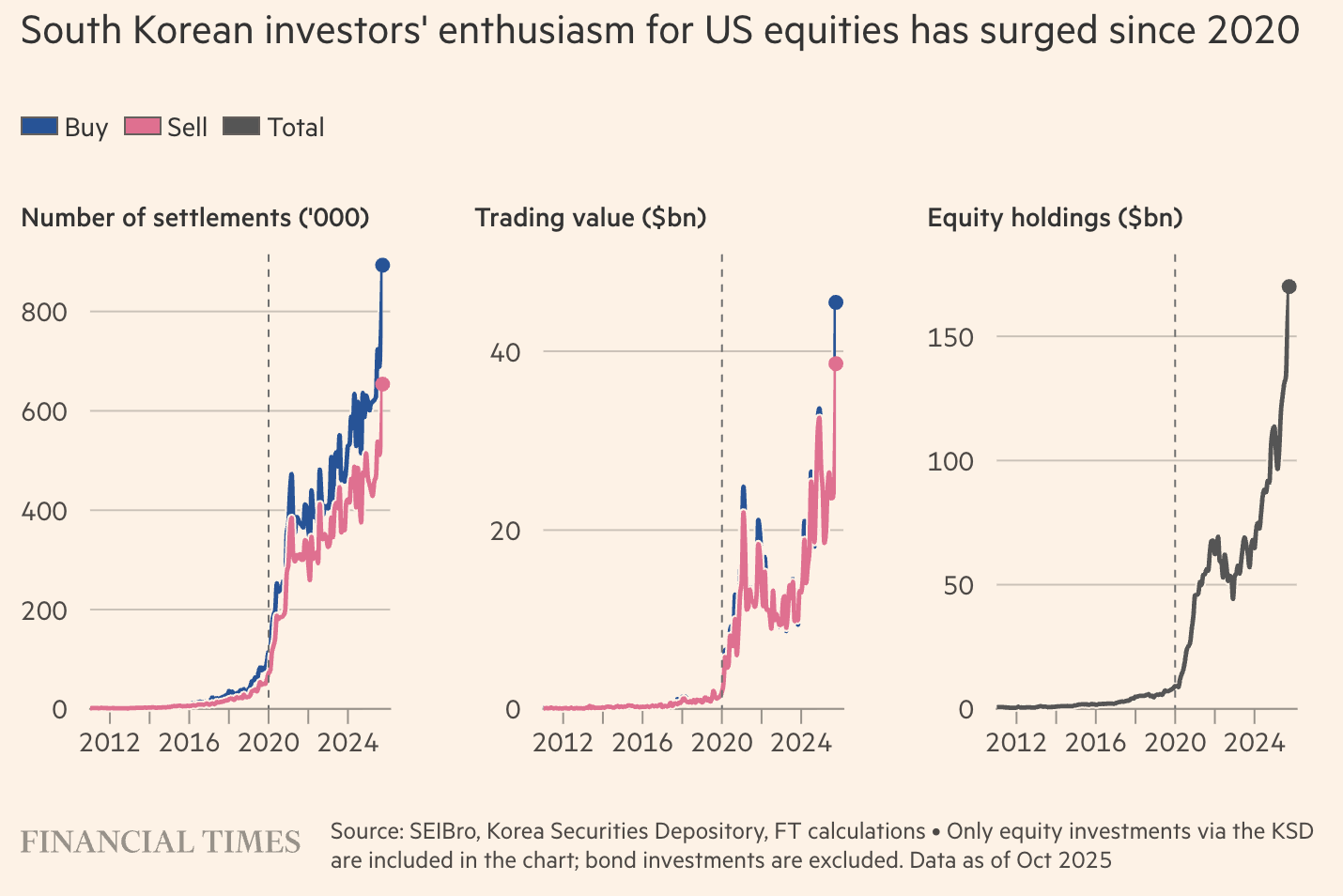
Source: @financialtimes
China
- The PBoC maintained an easing bias in its Q3 monetary policy report, but the renewed emphasis on “cross-cyclical” adjustment prompted Goldman Sachs and other global banks to push out forecasts for further rates until early 2026.

Source: Bloomberg
- China’s Singles’ Day shopping festival concluded with subdued consumer sentiment and modest sales momentum amid weak confidence and ongoing economic headwinds.

Source: Reuters
- According to Professor Takatoshi Ito's Japanization indices, China remains more "Japanized" than Japan, highlighting China's secular challenges.
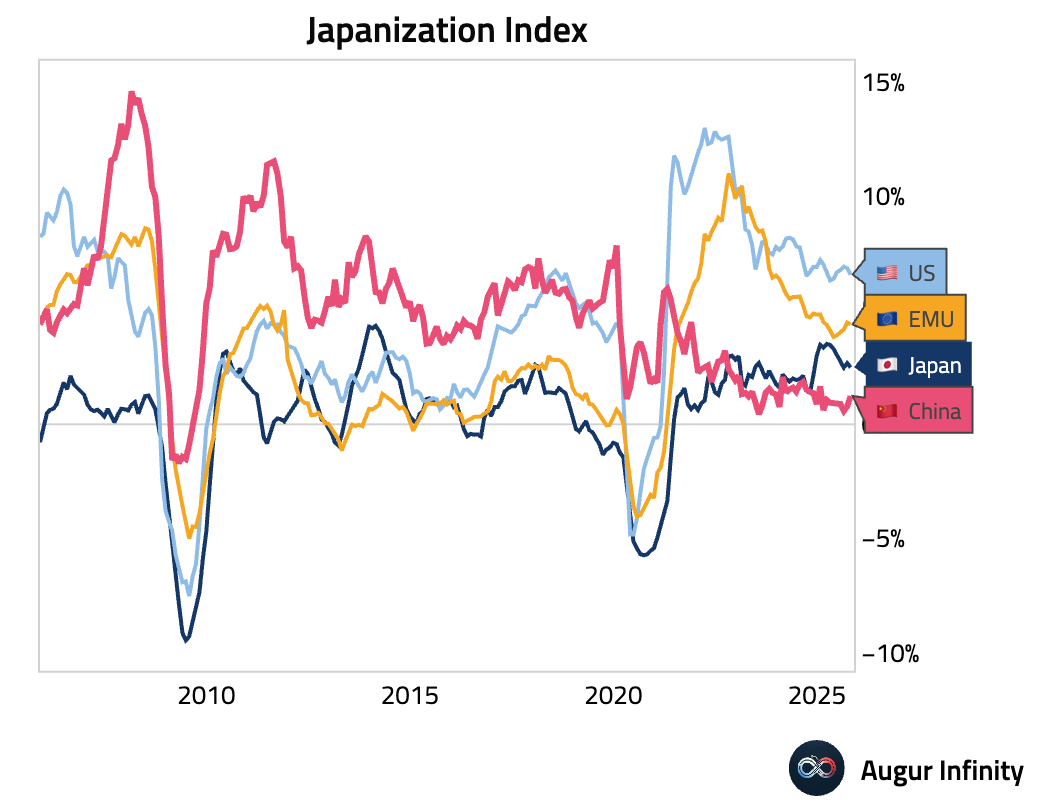
India
- India's headline inflation decelerated sharply to 0.25% year over year. Core inflation, which excludes food and fuel, remained firm, mainly driven by gold inflation. If we further strip out petrol, diesel, gold, and silver, the core-core inflation also declined.
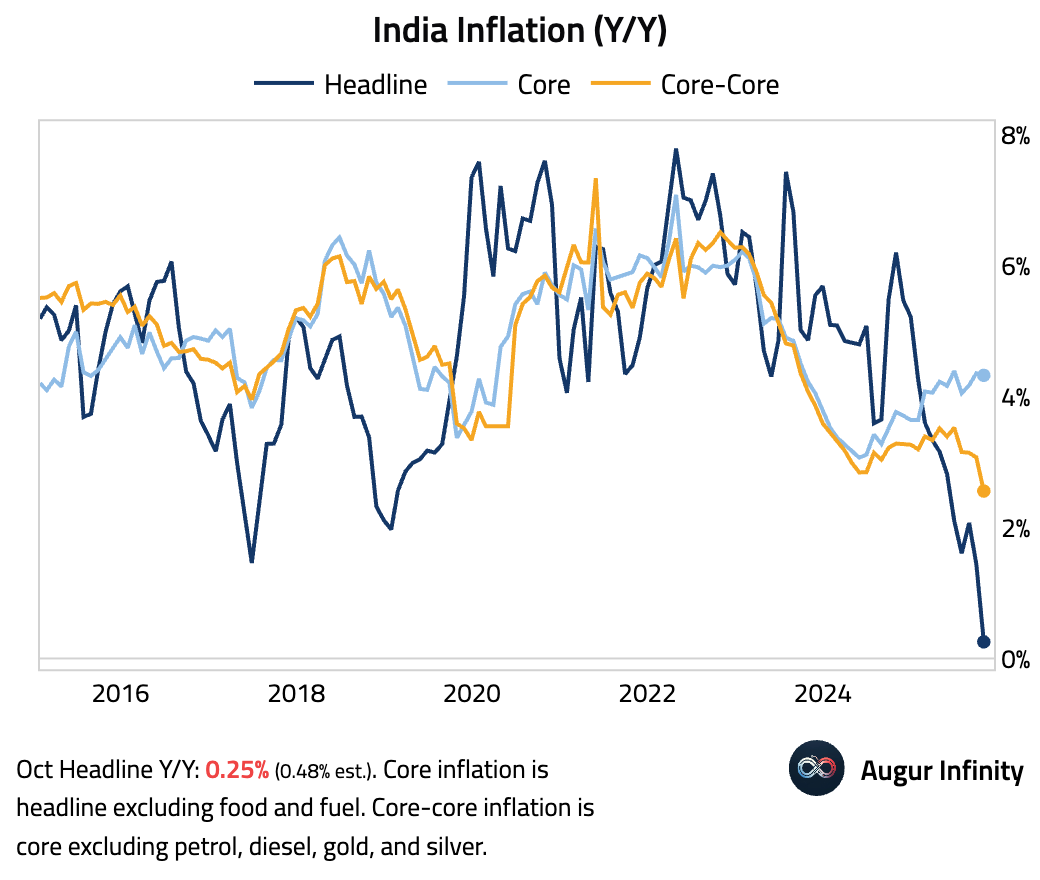
The Reserve Bank of India has reportedly sold about $20B in dollars and purchased roughly $2B in bonds to stabilize the rupee and cap bond yield as US tariffs weigh on exports and investor sentiment.
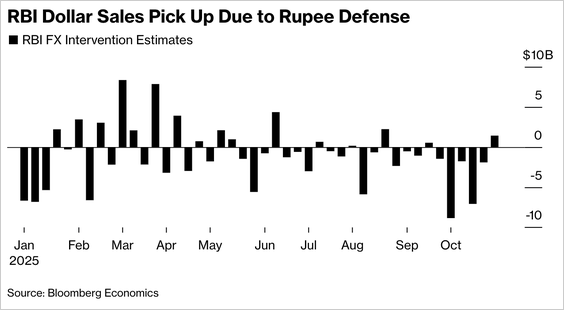
Source: Bloomberg
Emerging Markets
- South Africa lowered its inflation target to 3% ± 1 pp.
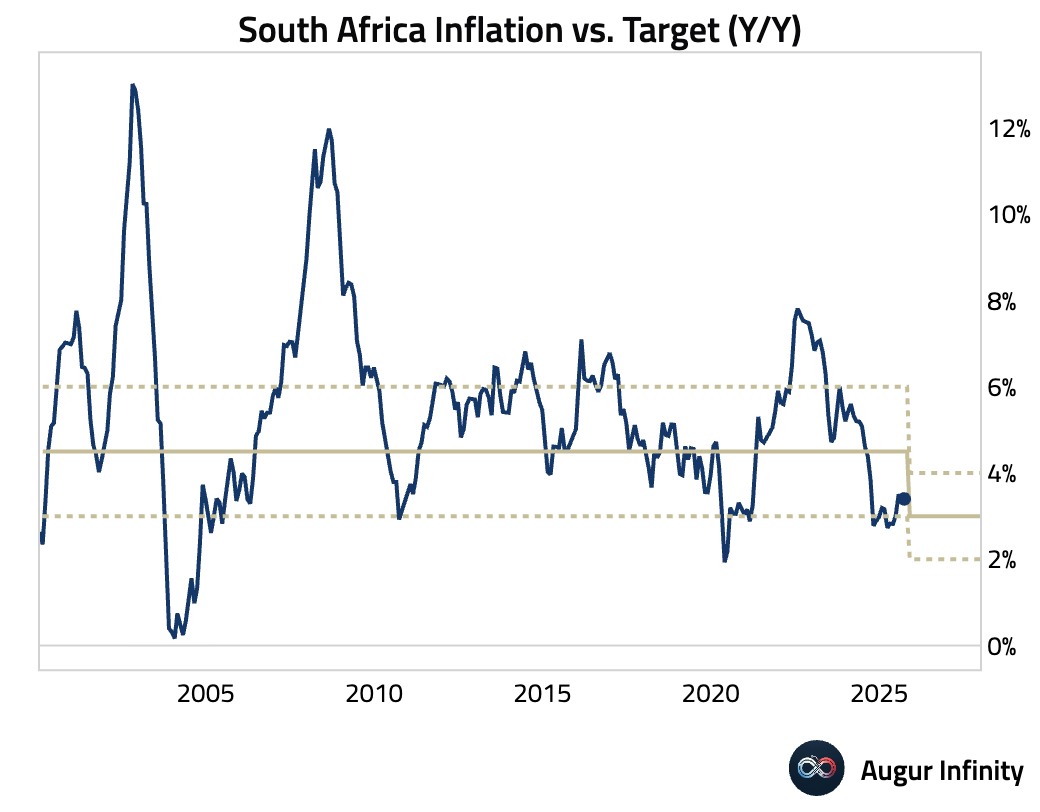
The move, expected by markets, strengthened the rand to its strongest level against the USD since February 2023 …
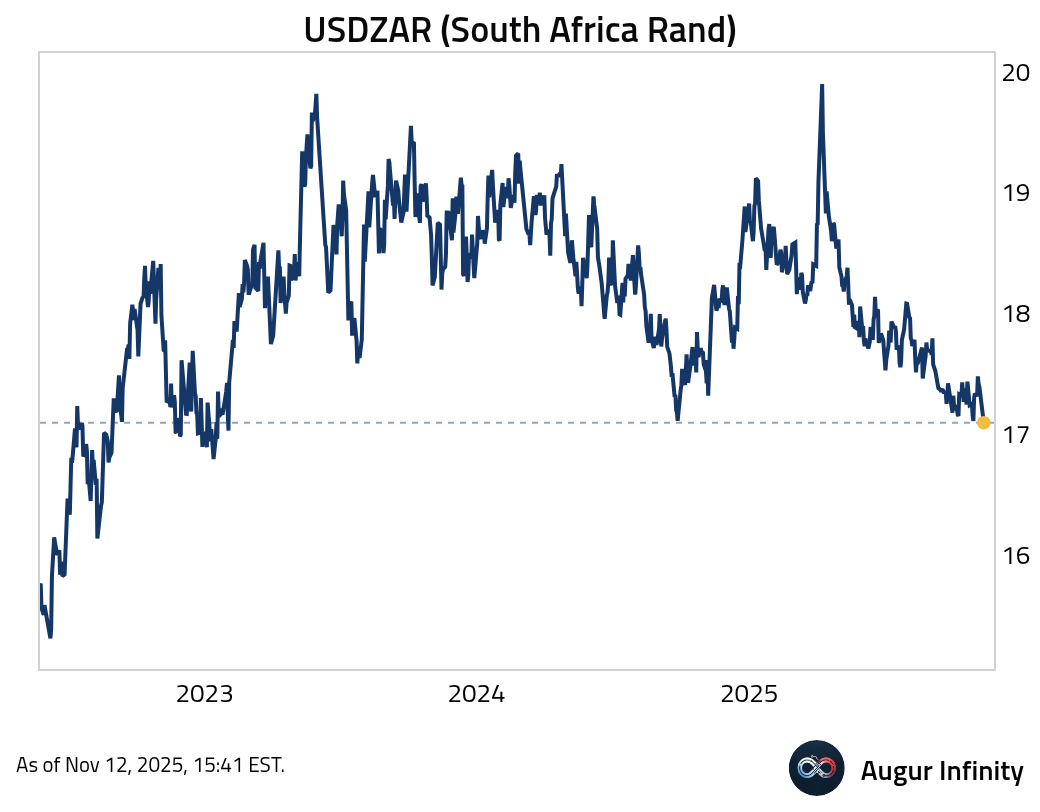
… and lowered bond yields.
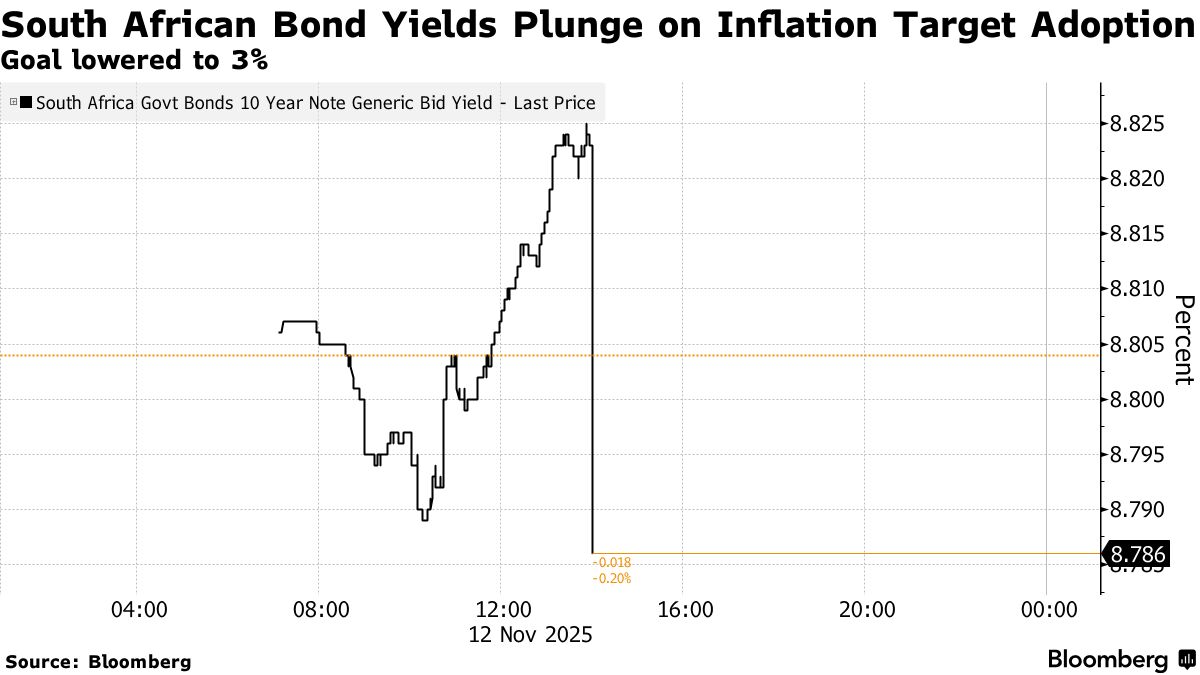
Source: Bloomberg
- Malaysian retail sales growth accelerated in September.
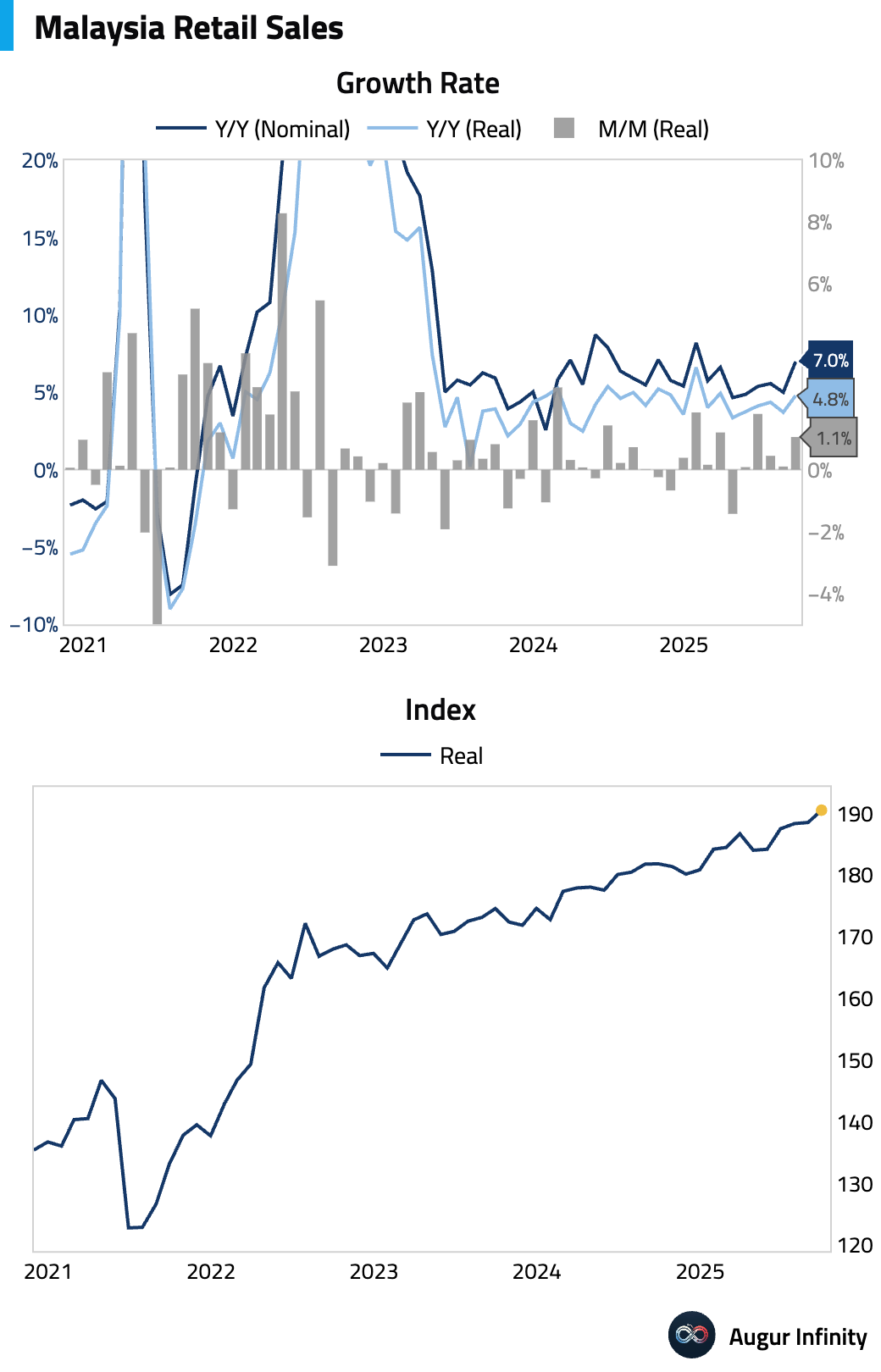
- Turkey’s current account surplus narrowed in September; the seasonally adjusted figure remained negative.
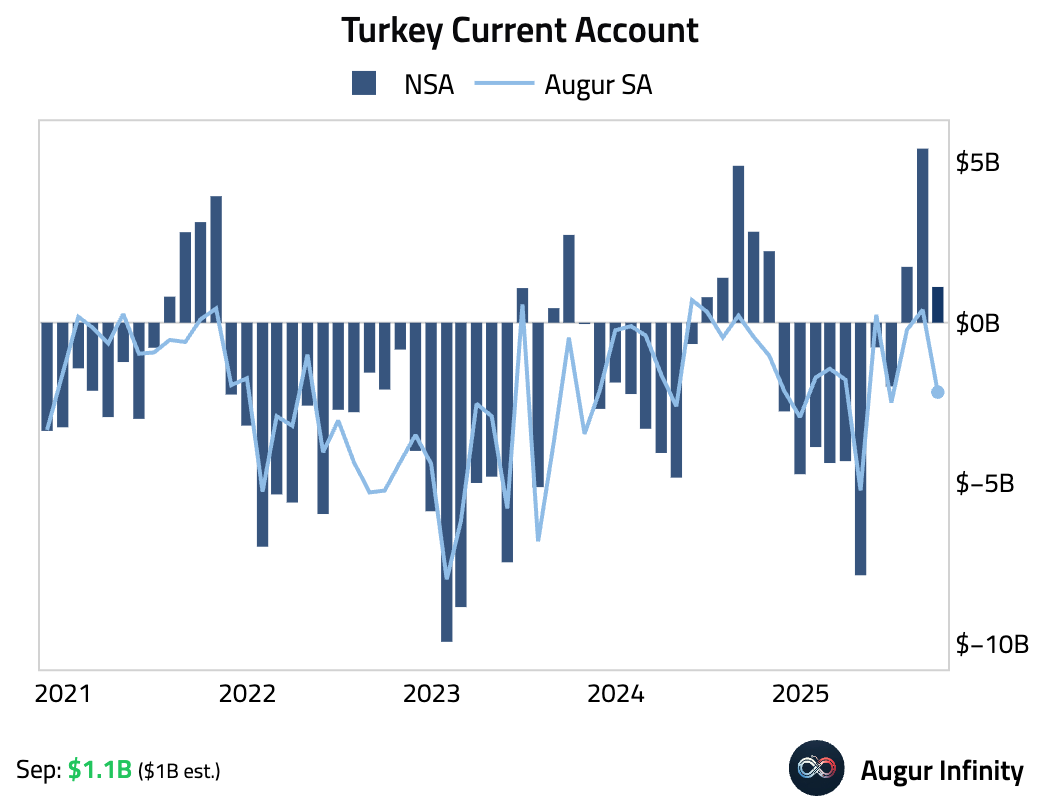
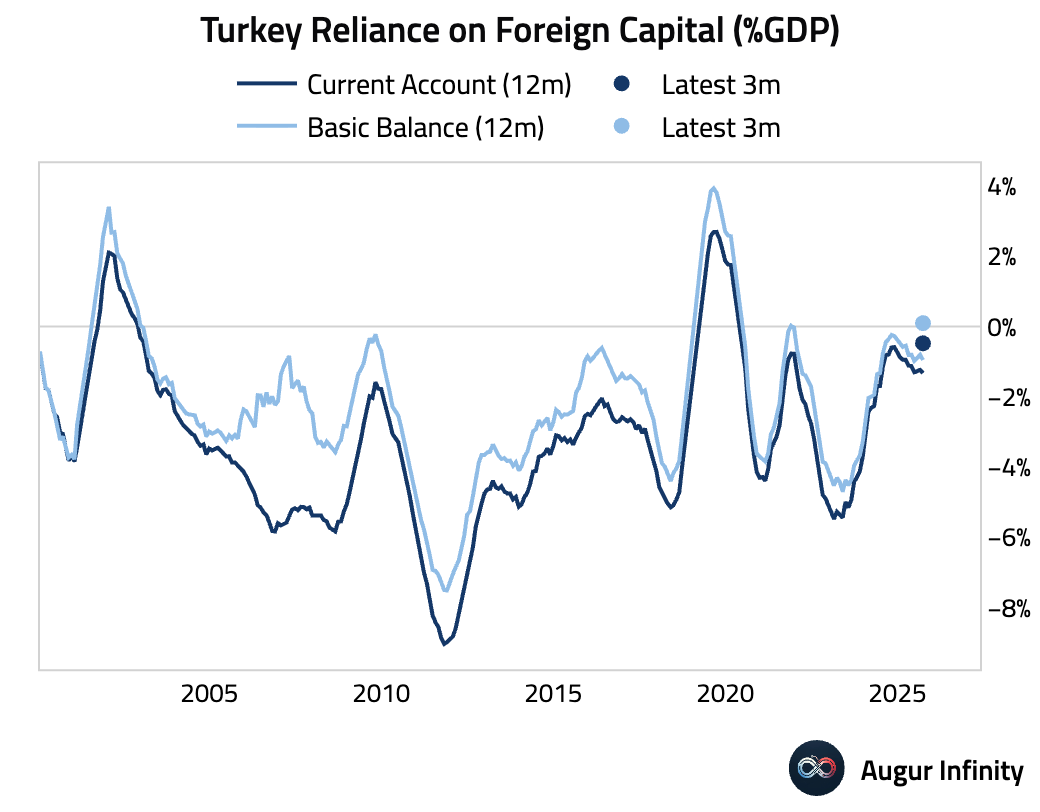
Equities
- US equities had a volatile day, but posted a fourth consecutive day of gains, buoyed by optimism that a government shutdown would soon end.
Let's also take a look at US market concentration. The market cap share of the top decile (i.e., the largest ten percent) of all US publicly traded companies has risen to a record high of 78%, based on Professor French's data released yesterday.
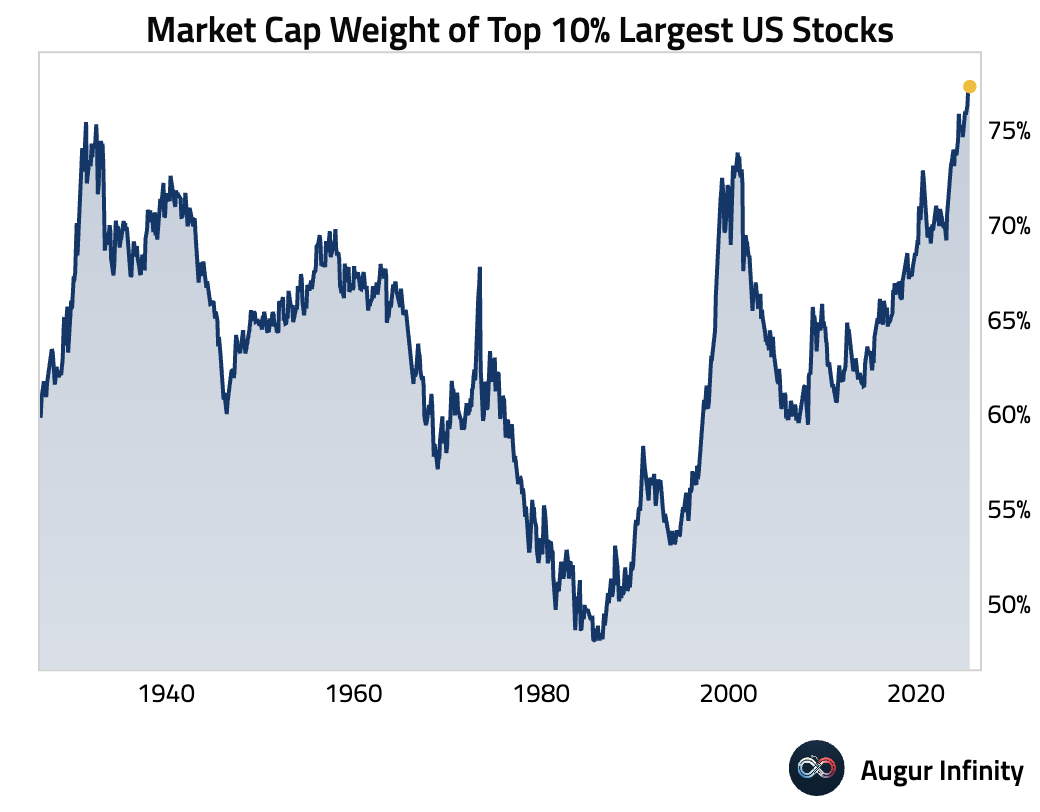
Source: Augur calculation based on data compiled by Ken French
Interactive chart on Augur Infinity
The top 10 largest companies continue to account for more than 40% of the S&P 500 market cap.
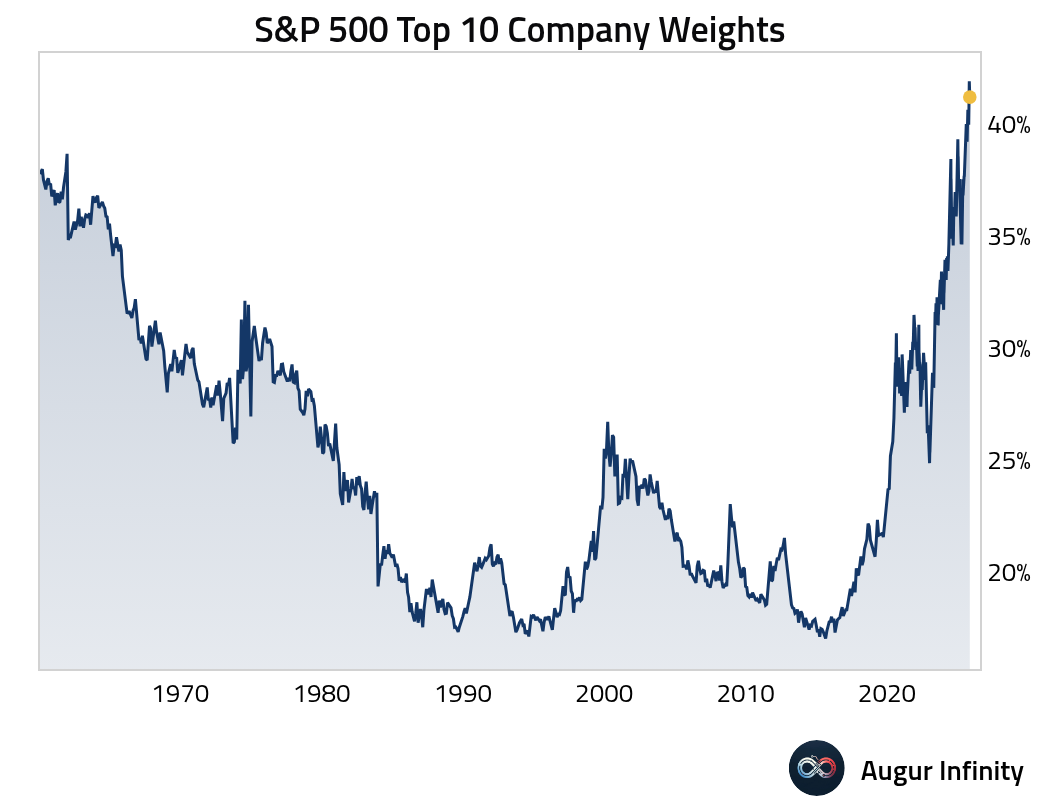
The market cap share has risen in tandem with surging earnings shares.
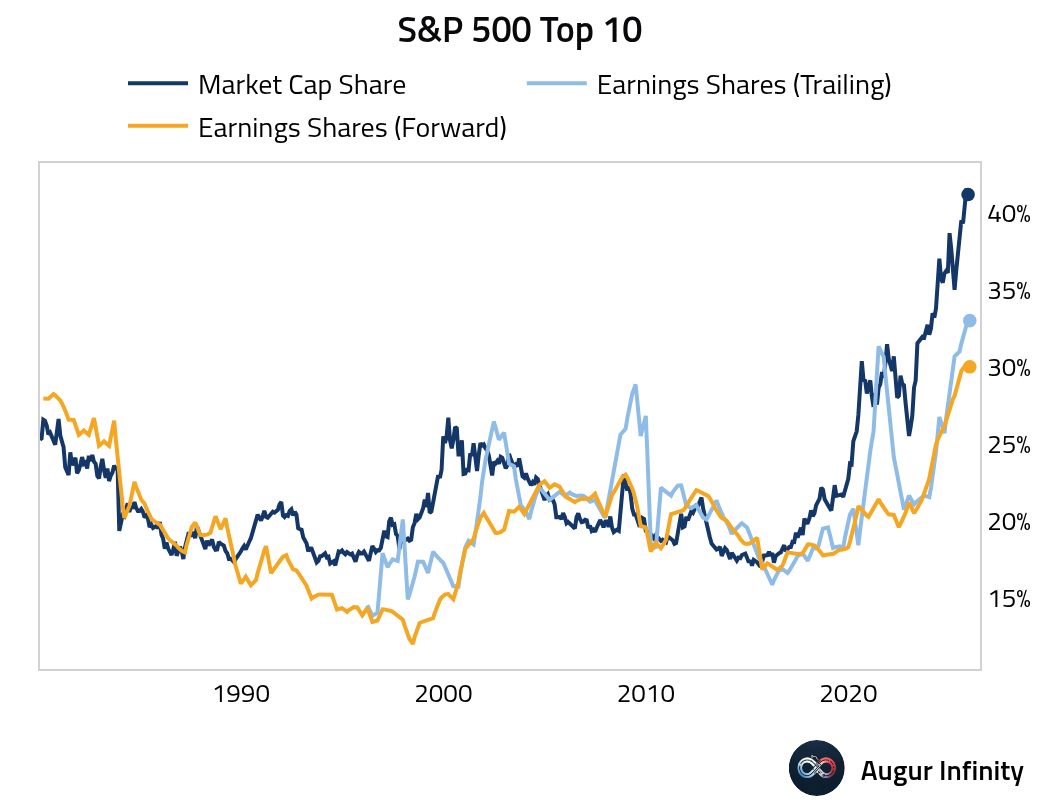
Mag 7 stocks have outperformed the rest of the S&P 500 universe by 10 percentage points this year.
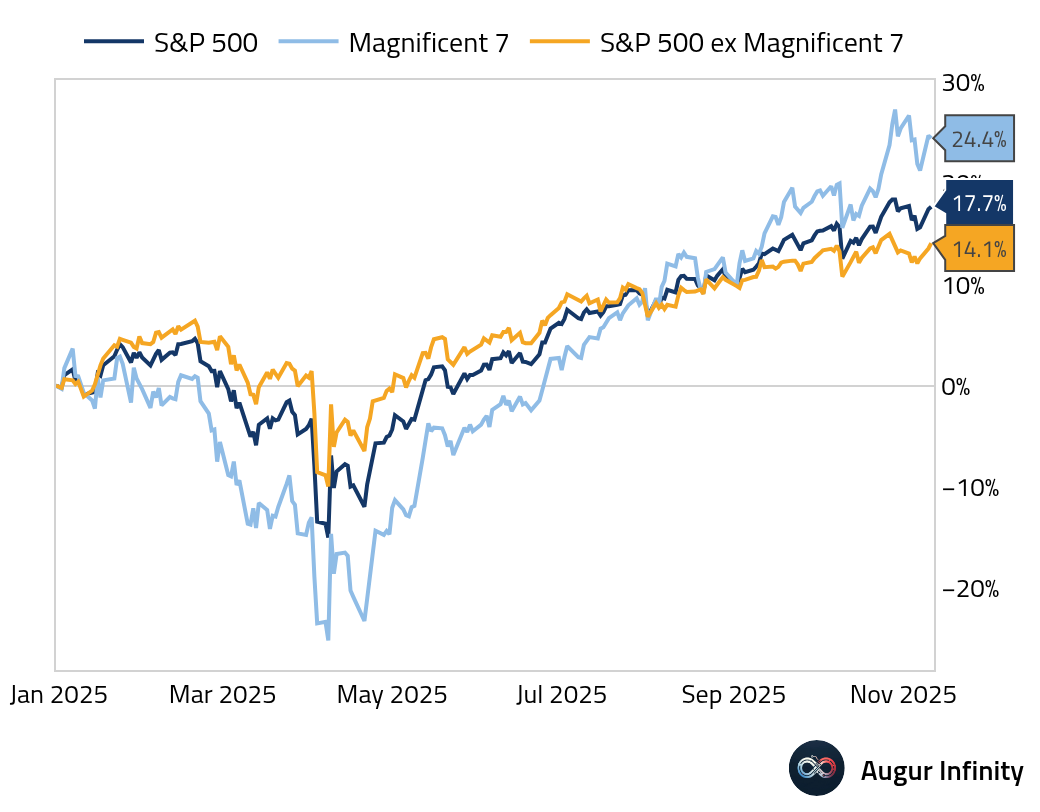
Mag 7 forward P/E is over 40% higher than that of other S&P 500 members, suggesting the market continues to extrapolate the success of the largest companies forward.
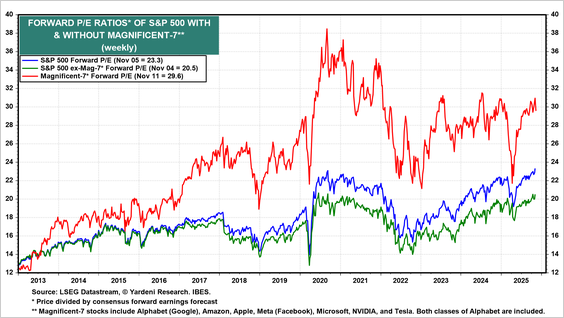
Source: Yardeni Research
- Mentions of “economic slowdown” in corporate earnings calls have fallen to their lowest level since 2007.
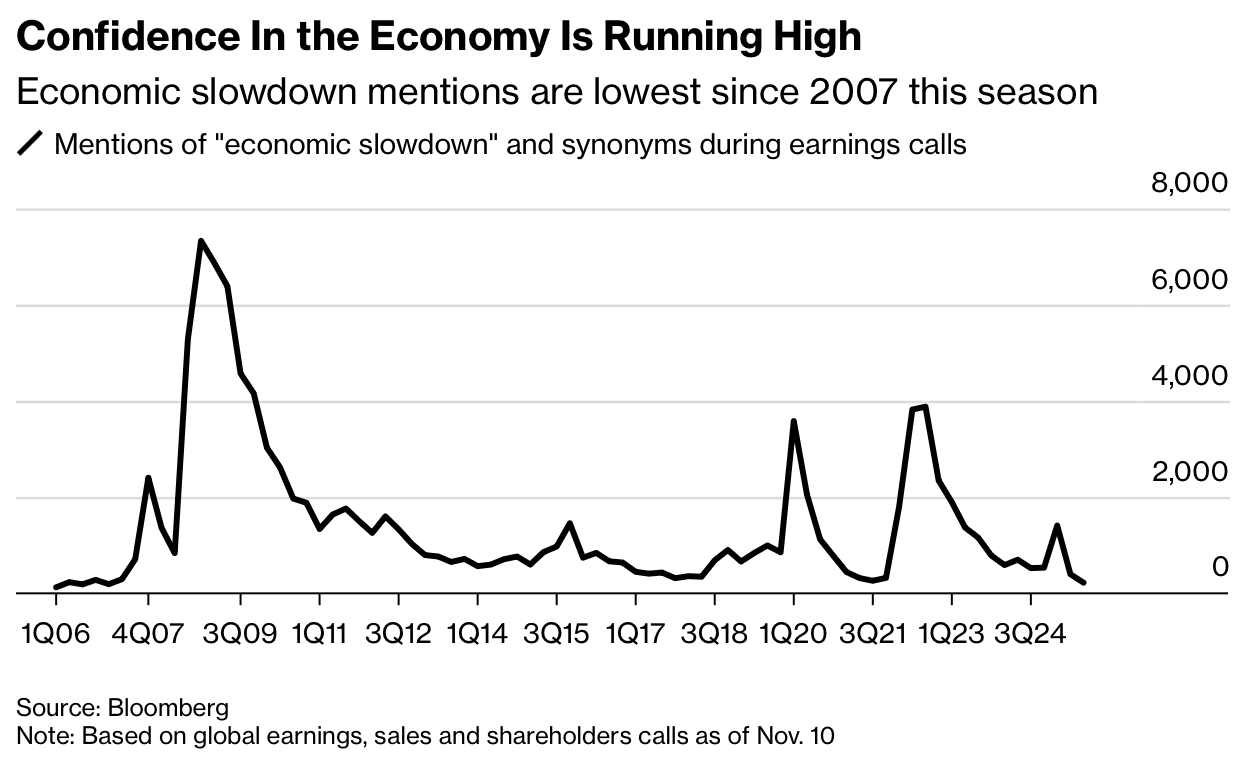
Source: Bloomberg
Rates
- US Treasury yields declined across the curve. The move was reportedly driven by expectations that the Federal Reserve might resume bond purchases to support market liquidity, alongside softer inflation expectations.
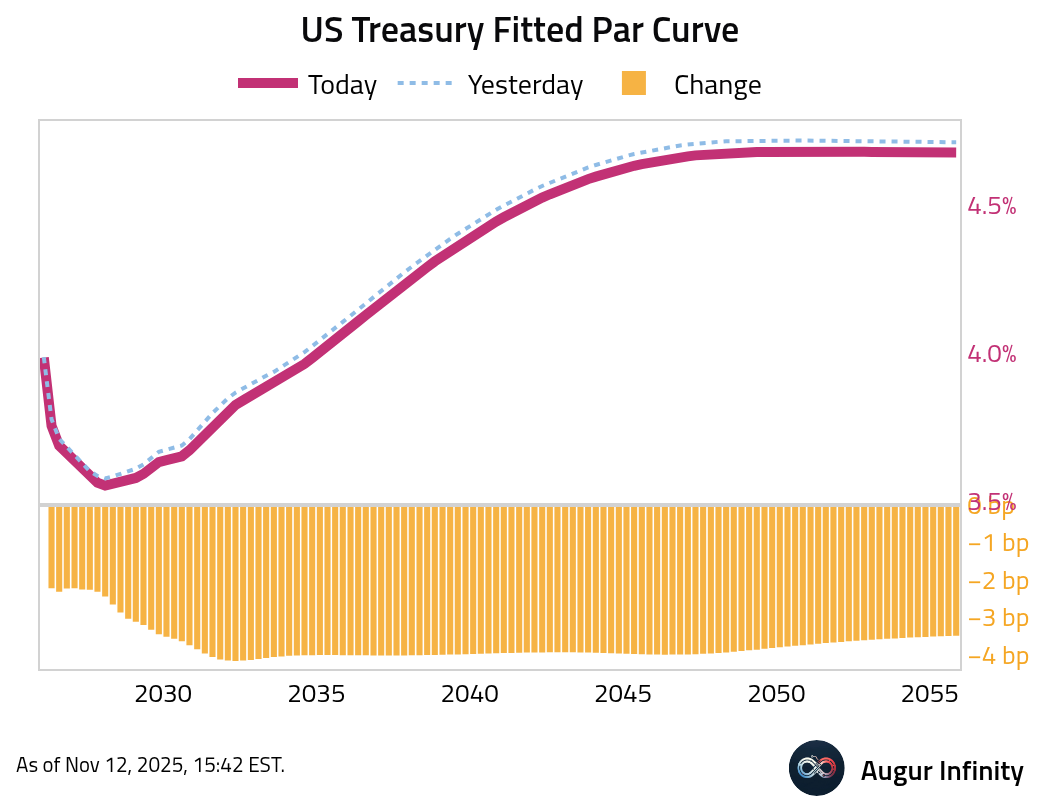
- Treasury market liquidity briefly deteriorated in April 2025 following tariff announcements but has since normalized.
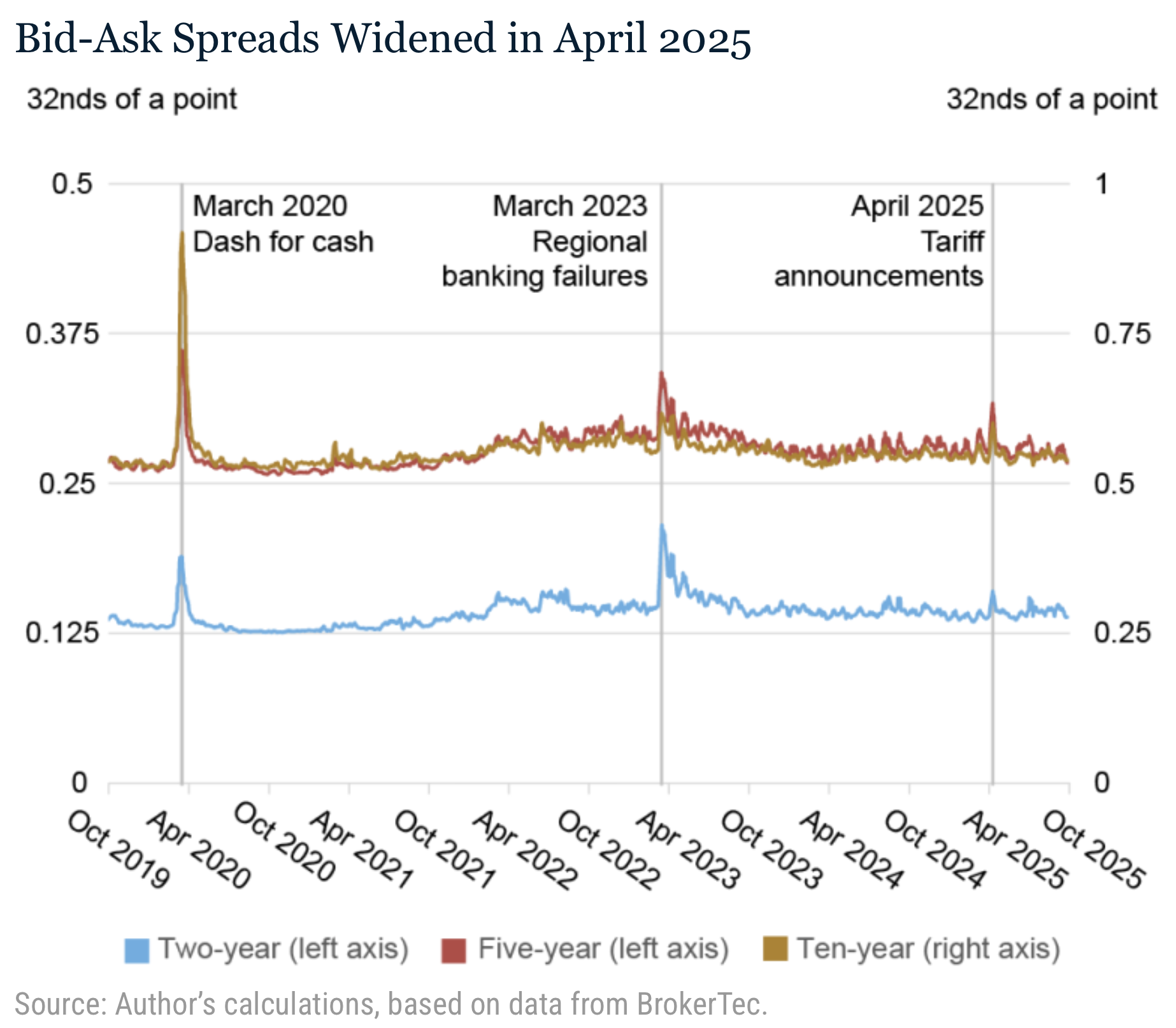
Source: Liberty Street Economics, New York Fed
Order book depth fell sharply in April but rebounded quickly. By late summer, depth had returned to levels matching or exceeding those seen since the Fed’s tightening cycle began in 2022.
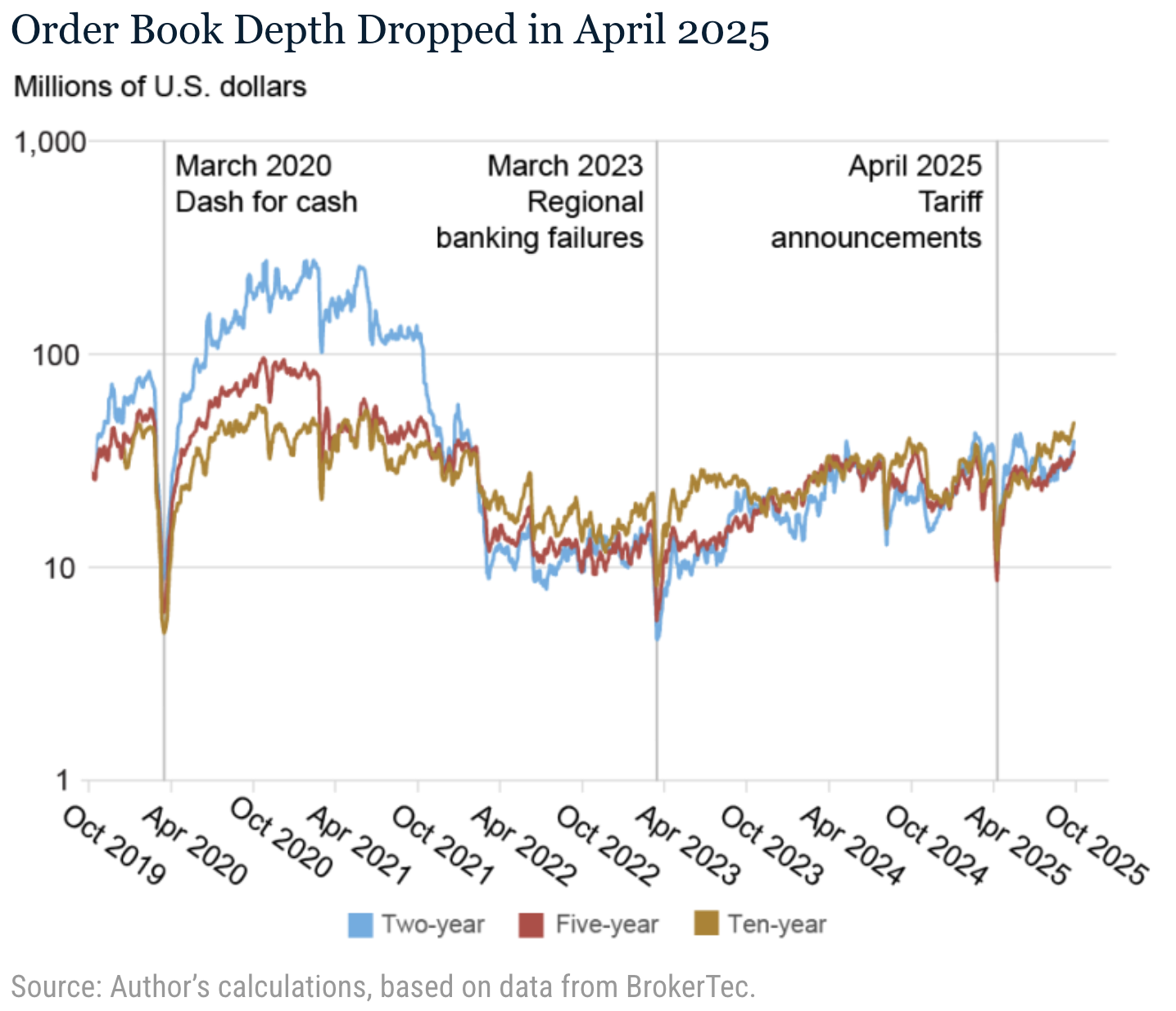
Source: Liberty Street Economics, New York Fed
Liquidity in 2025 has tracked volatility, consistent with historical patterns.
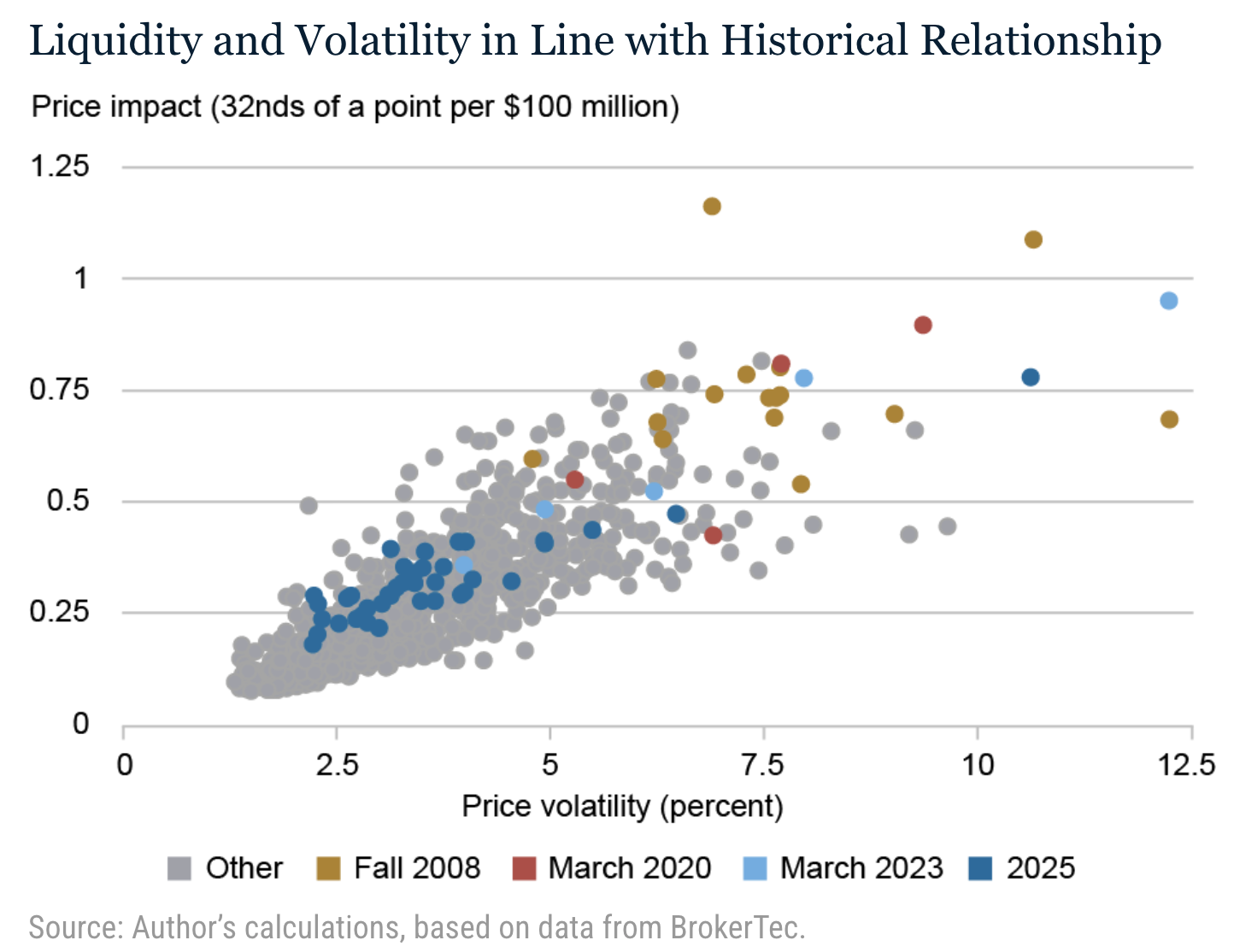
Source: Liberty Street Economics, New York Fed
Commodities
- Crude declined by over 4% in a 2.0σ move.
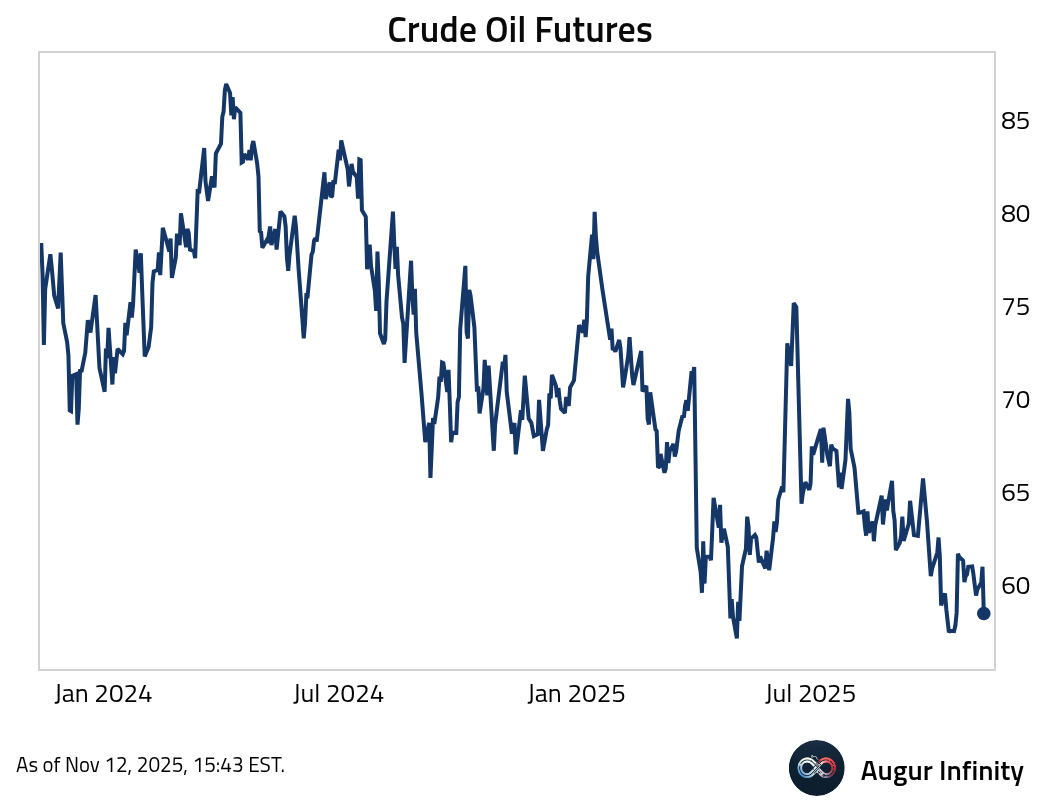
- Silver surged today.
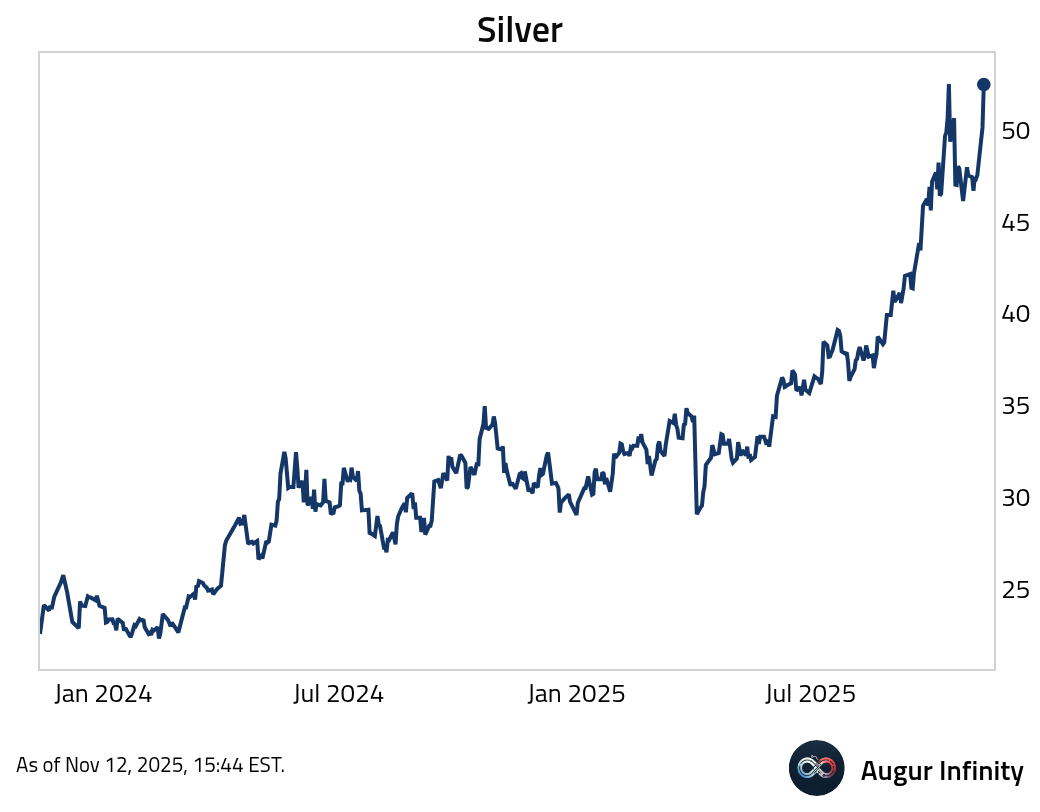
- Aluminum has been one of the strongest performers on the London Metal Exchange in recent months, with investors weighing the impact of Chinese capacity curbs at a time of resilient demand.
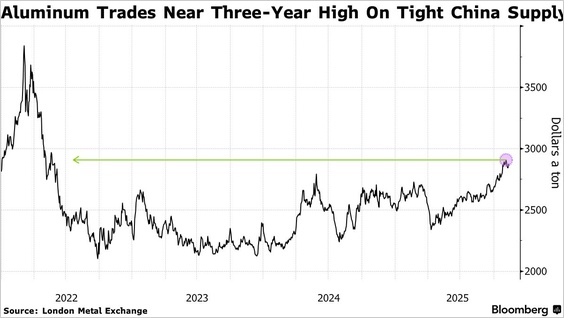
Source: Bloomberg
Food for Thought
- About 25% of the US population has a subprime credit score.
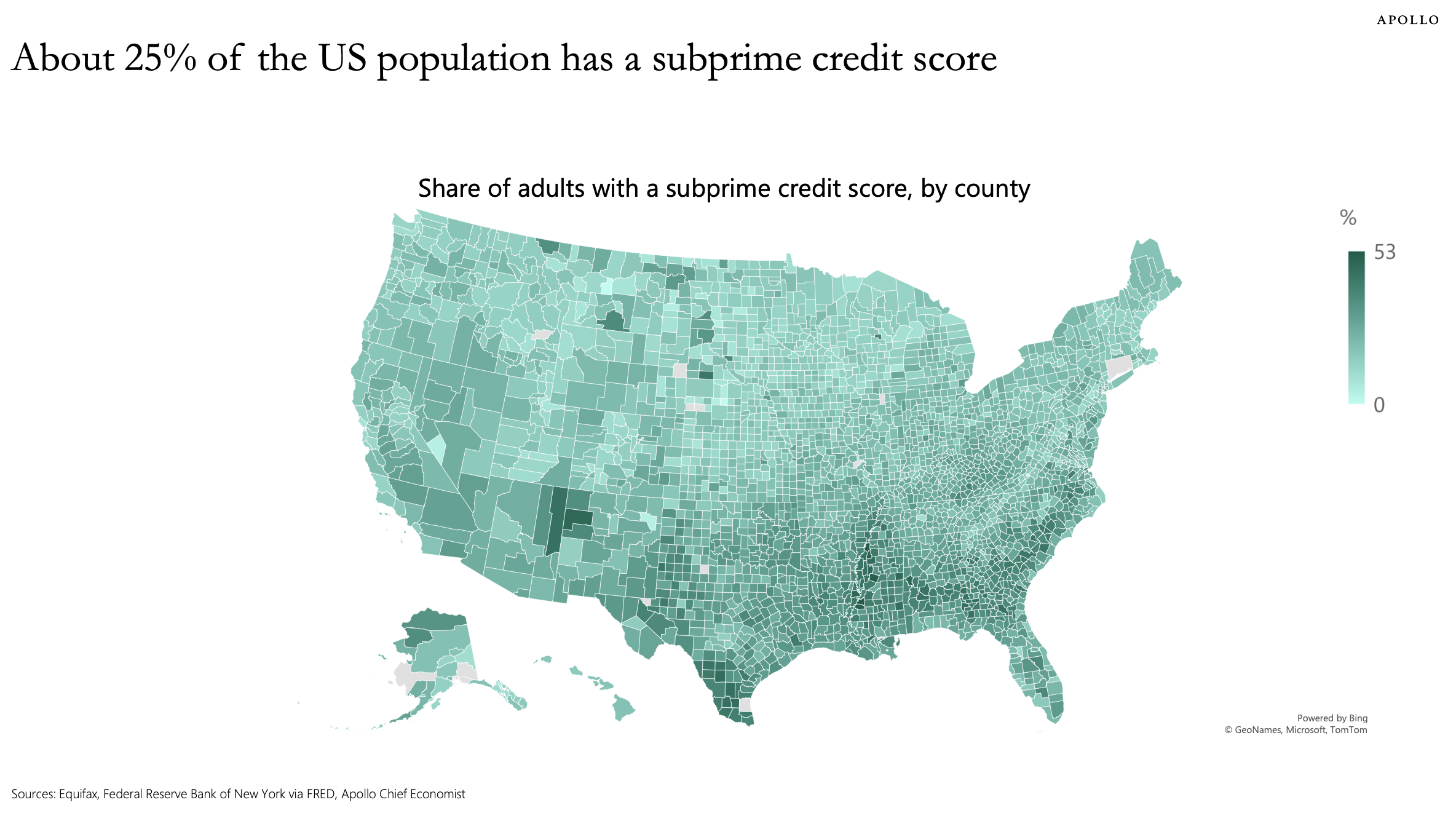
Source: Torsten Slok, Apollo
- China's emissions have now been flat or falling for 18 months straight.
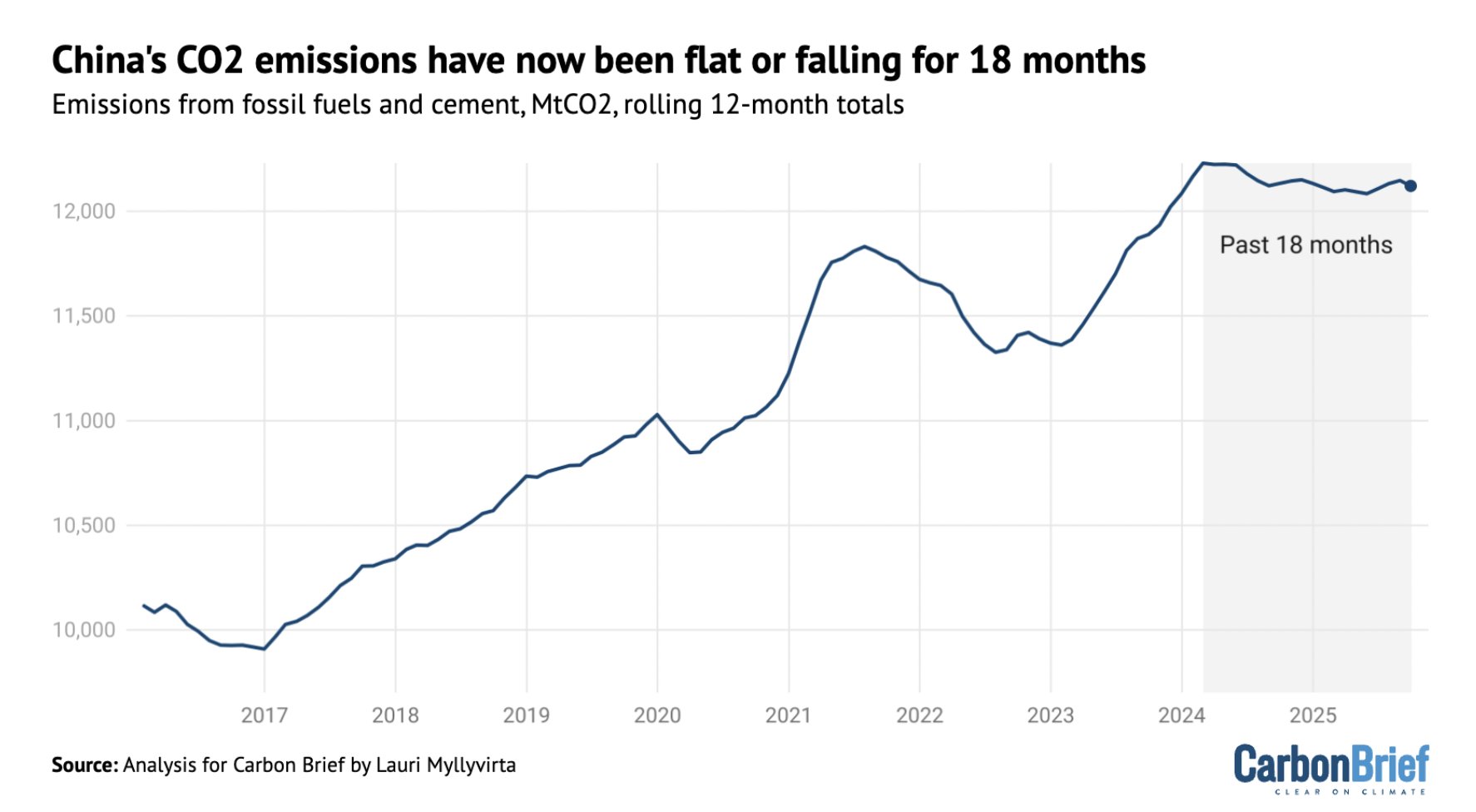
Source: Carbon Brief
Disclaimer
Augur Digest is an automatically generated newsletter edited by humans. It may contain inaccuracies and is not investment advice. Augur Labs LLC will not accept liability for any loss or damage as a result of your reliance on the information contained in the newsletter.

